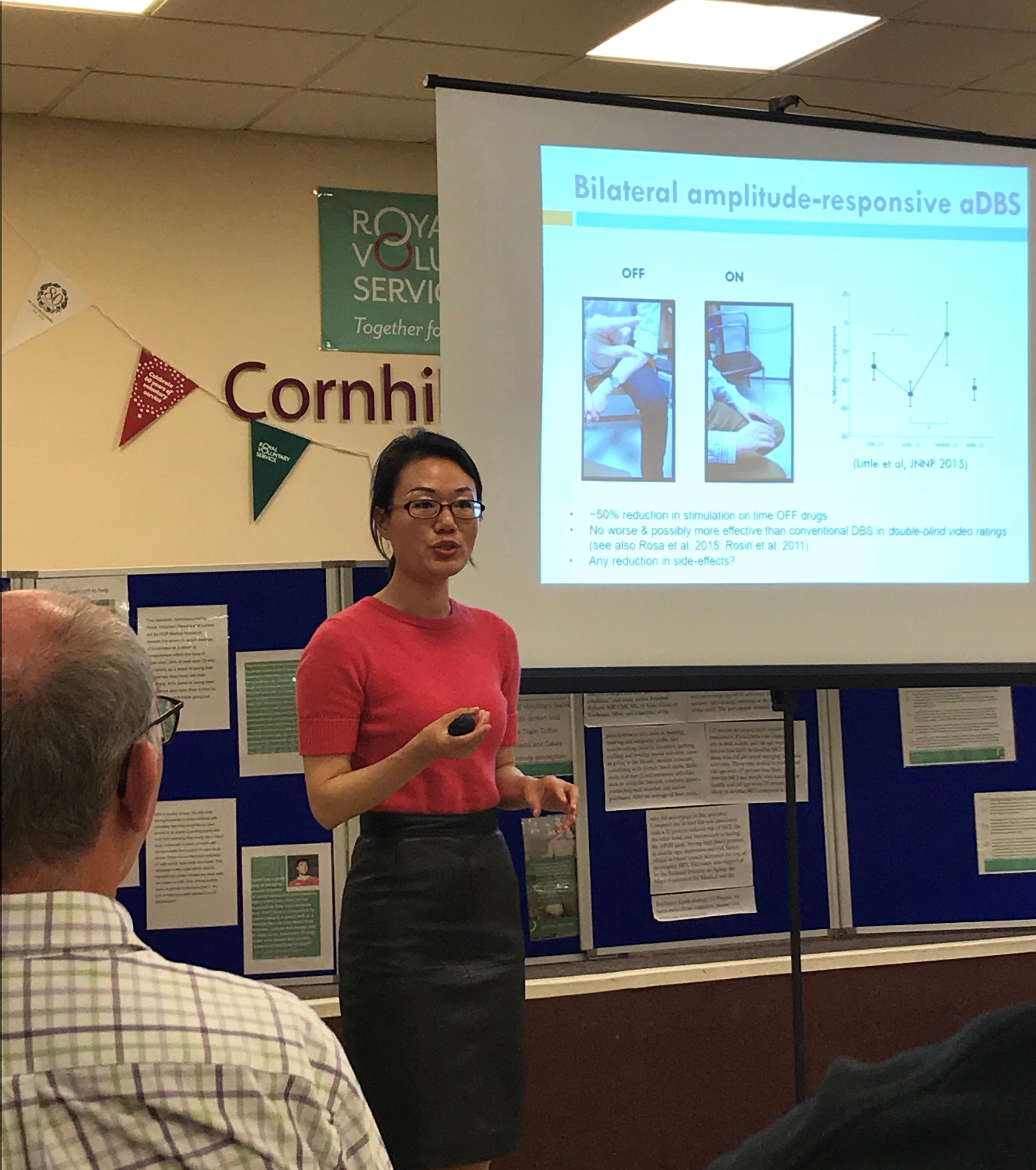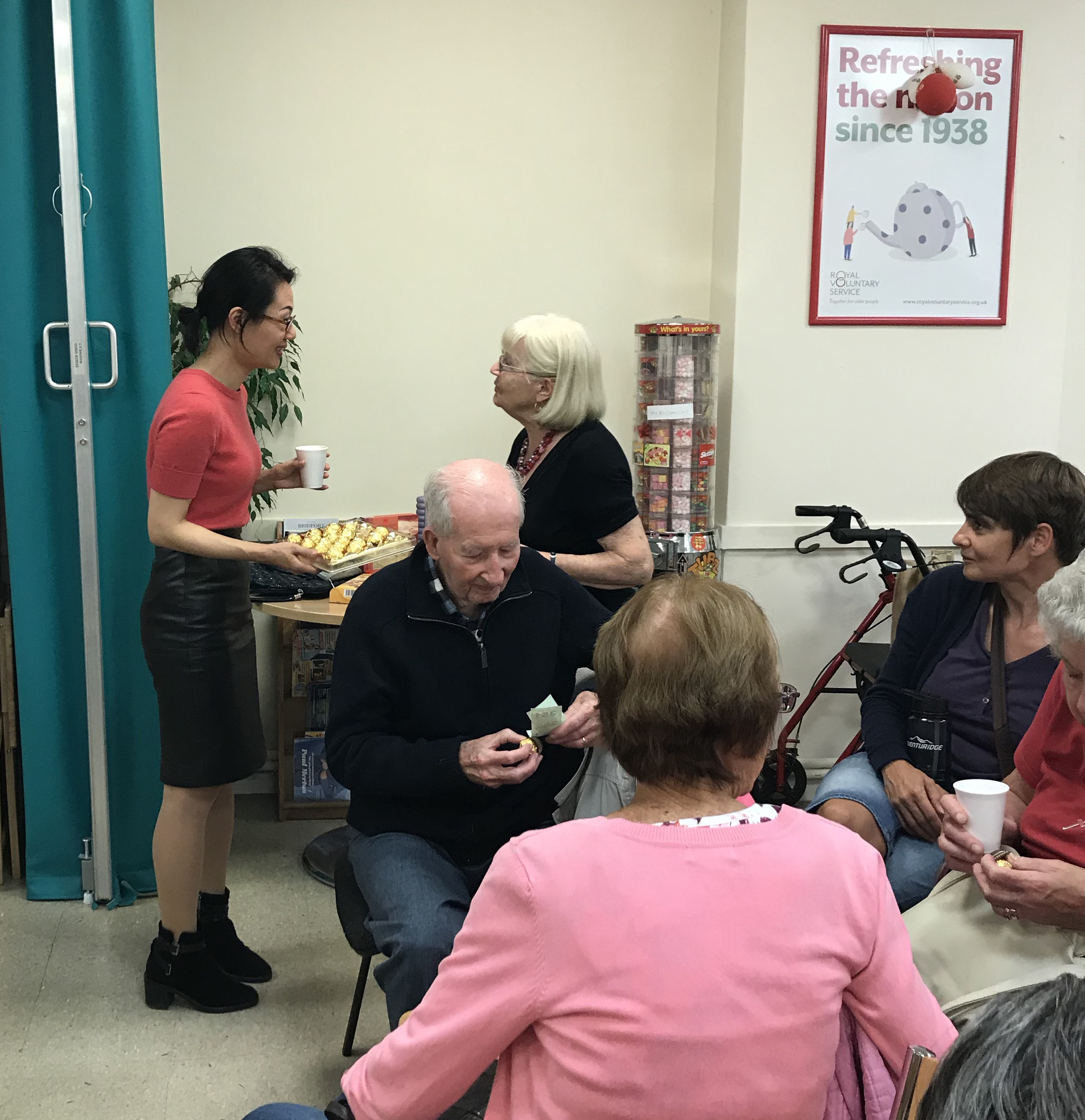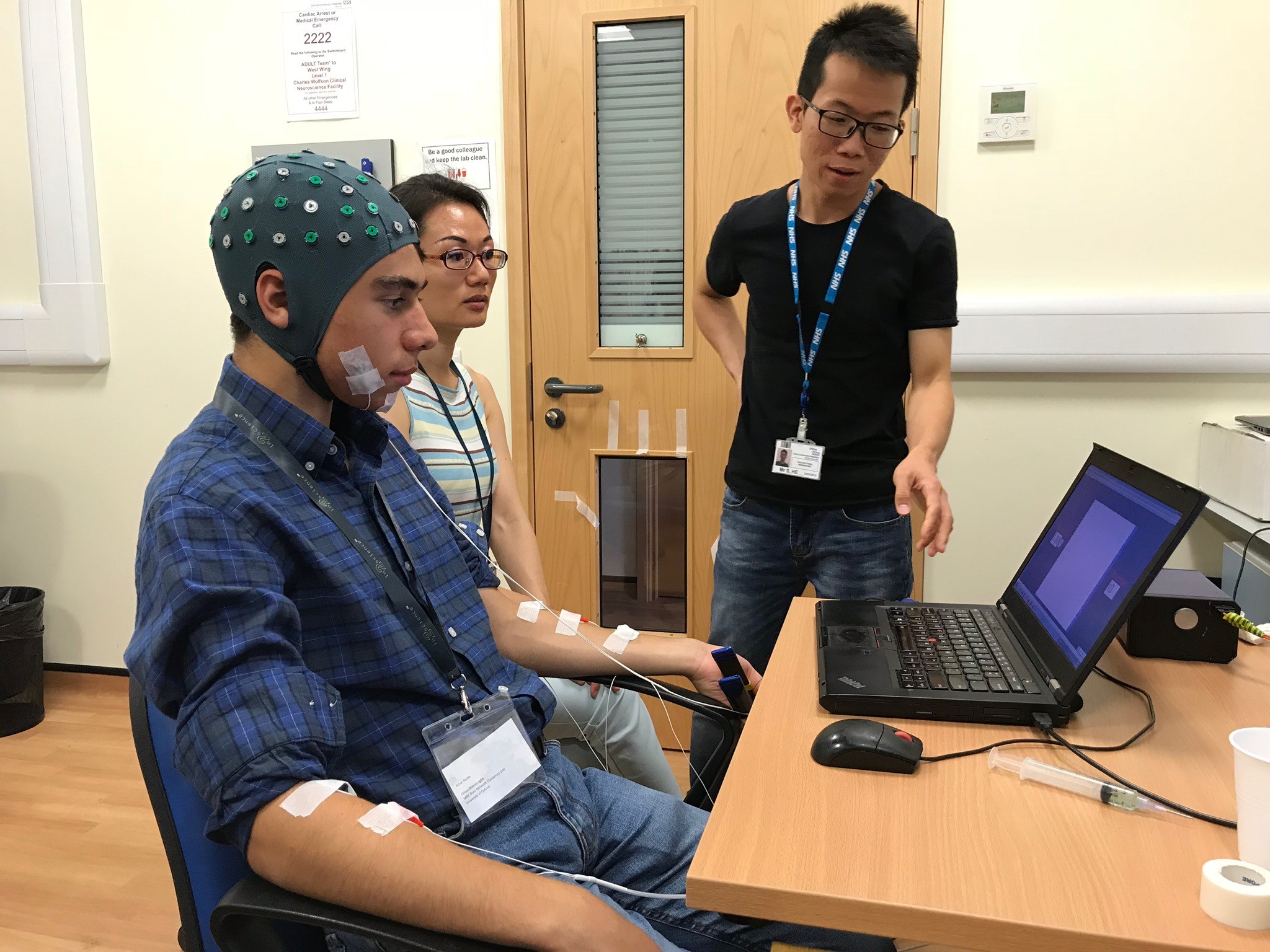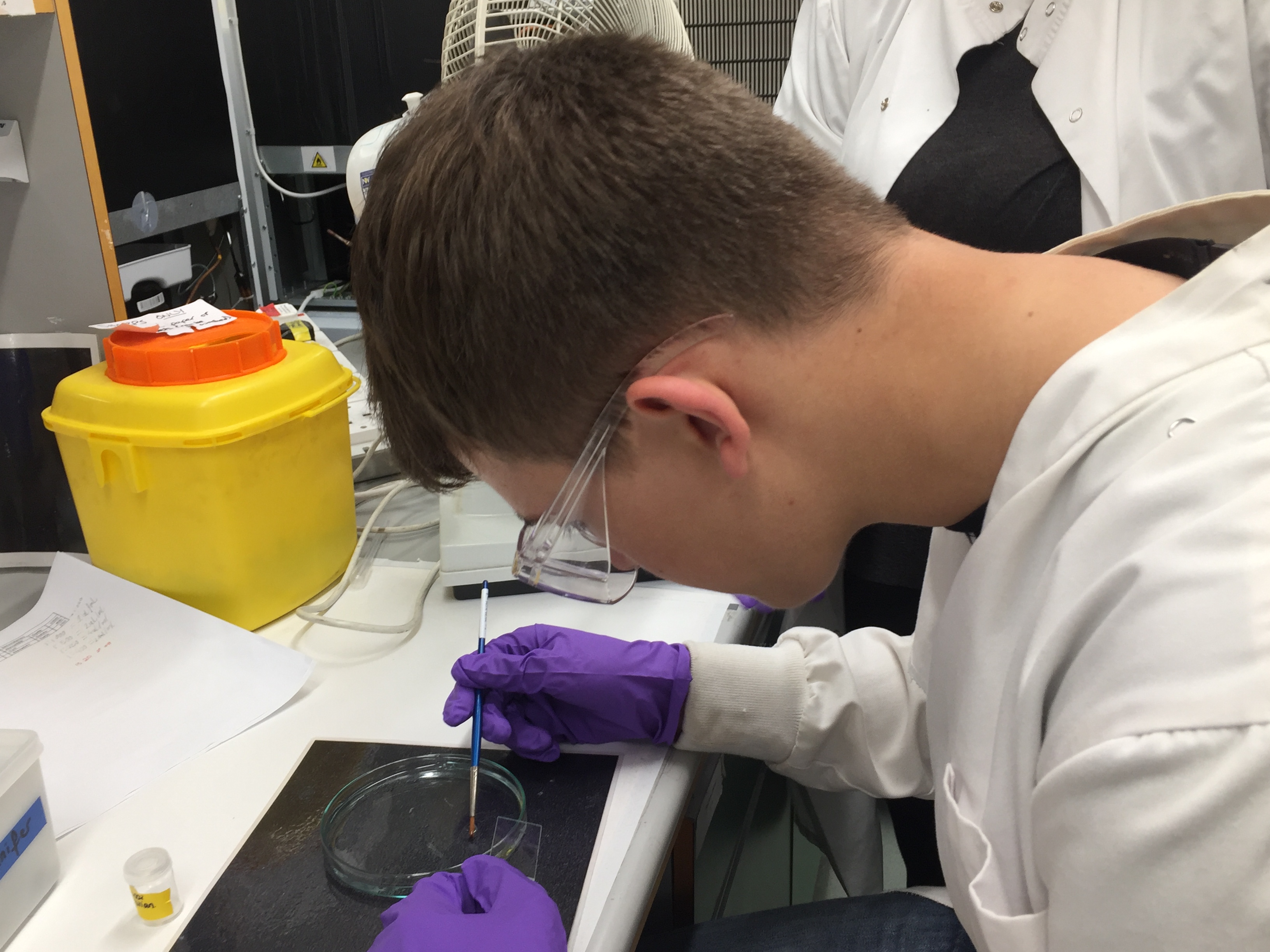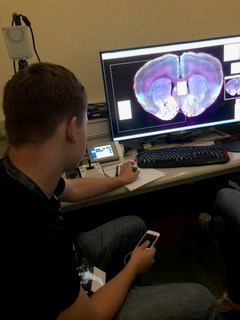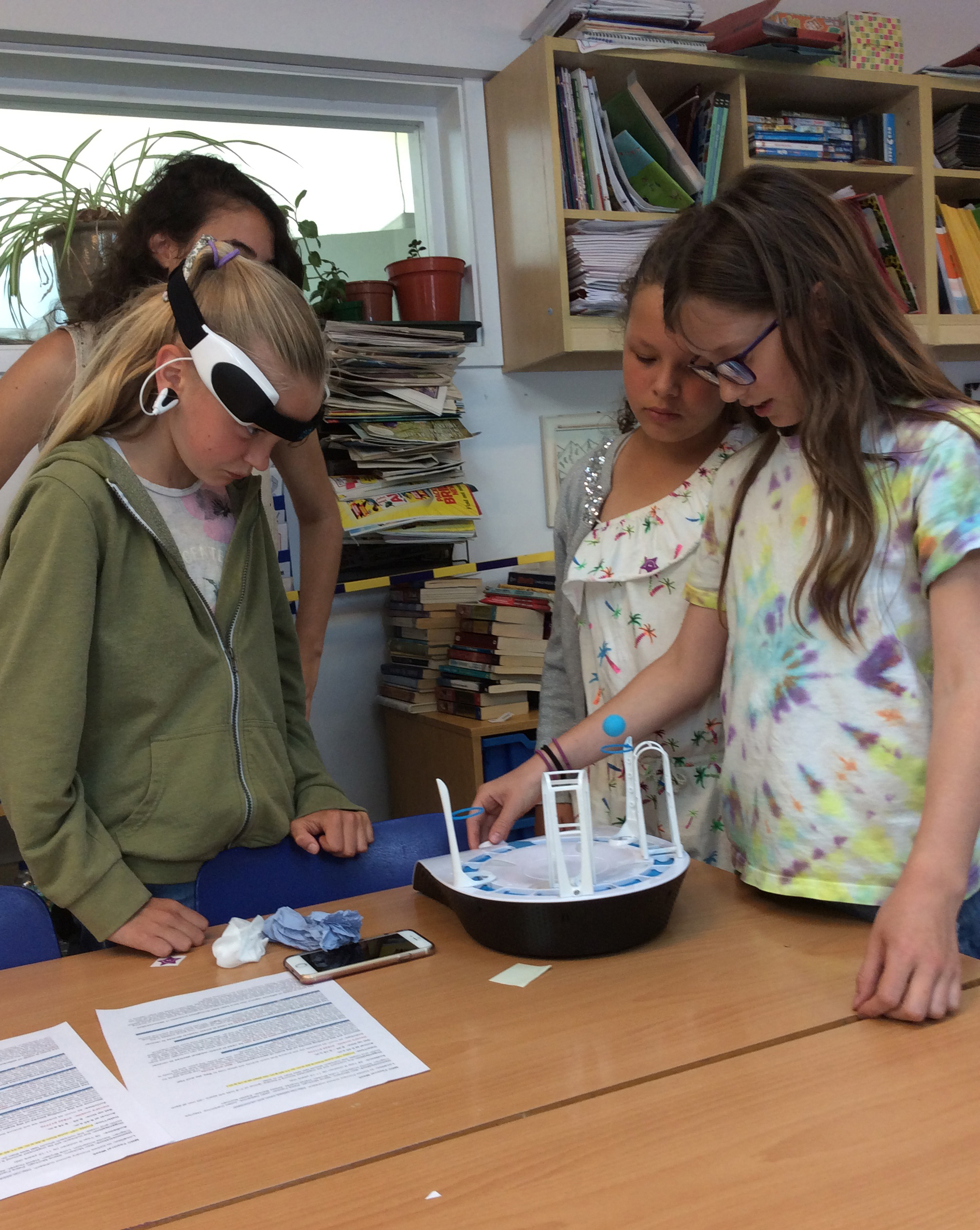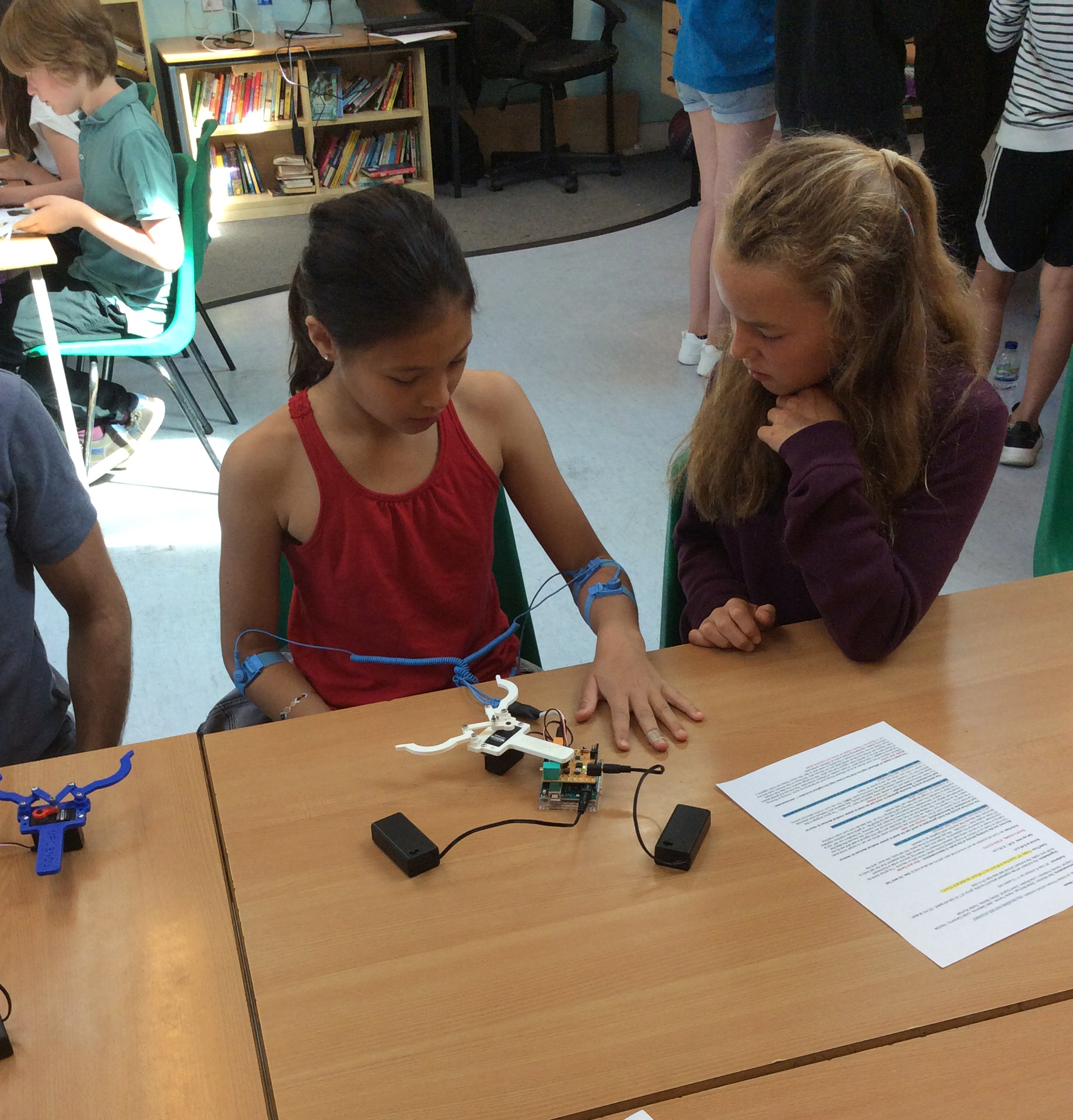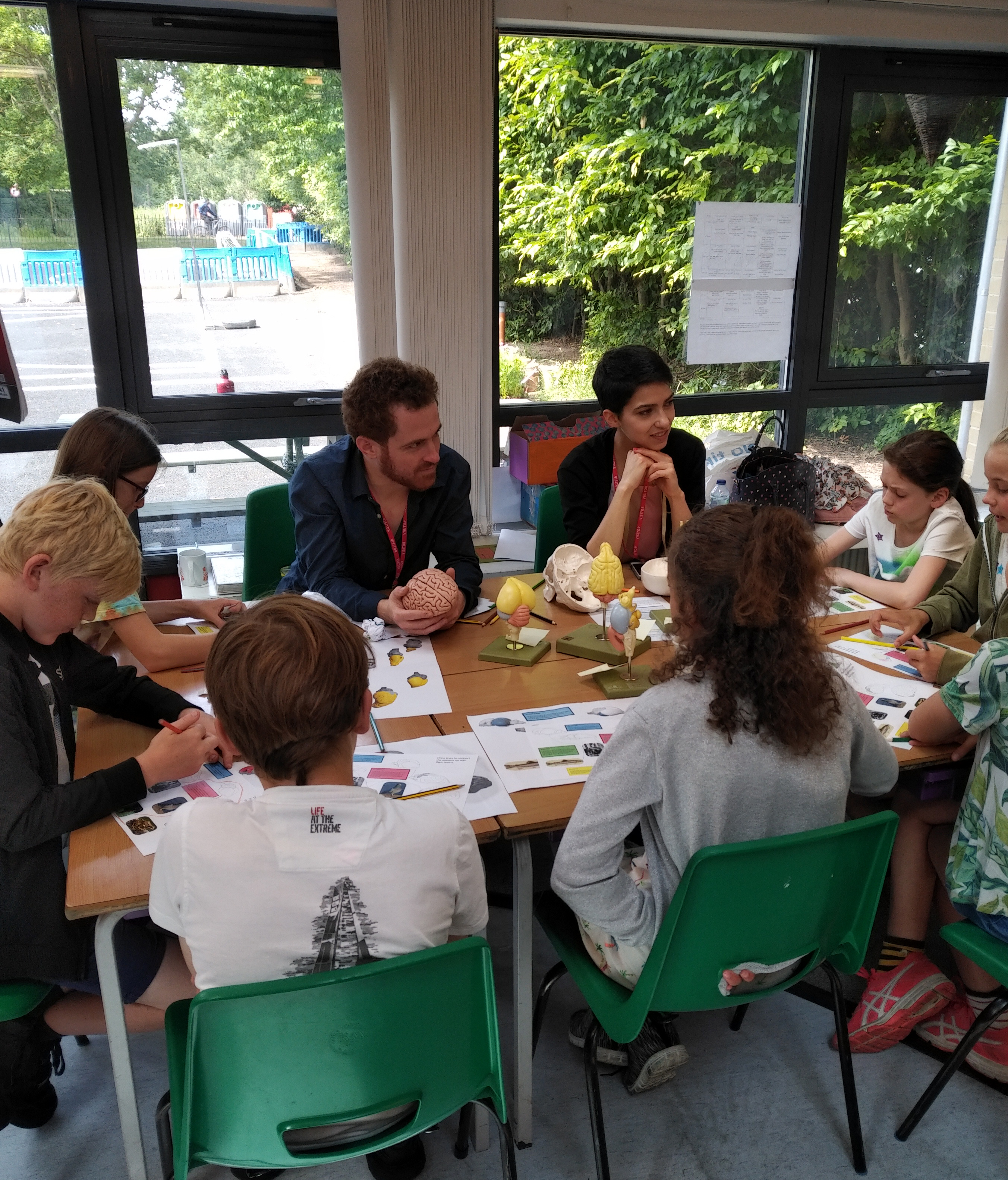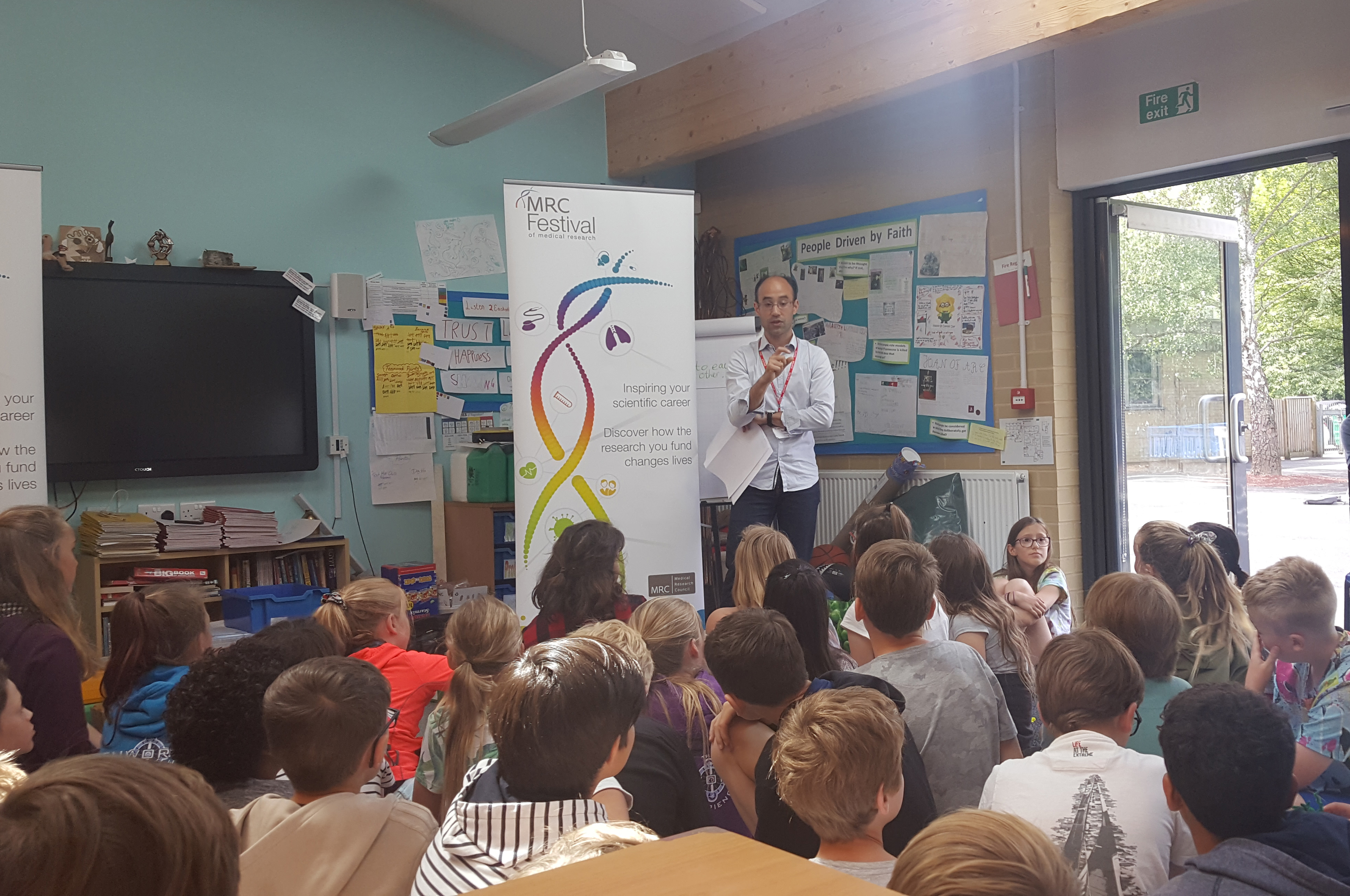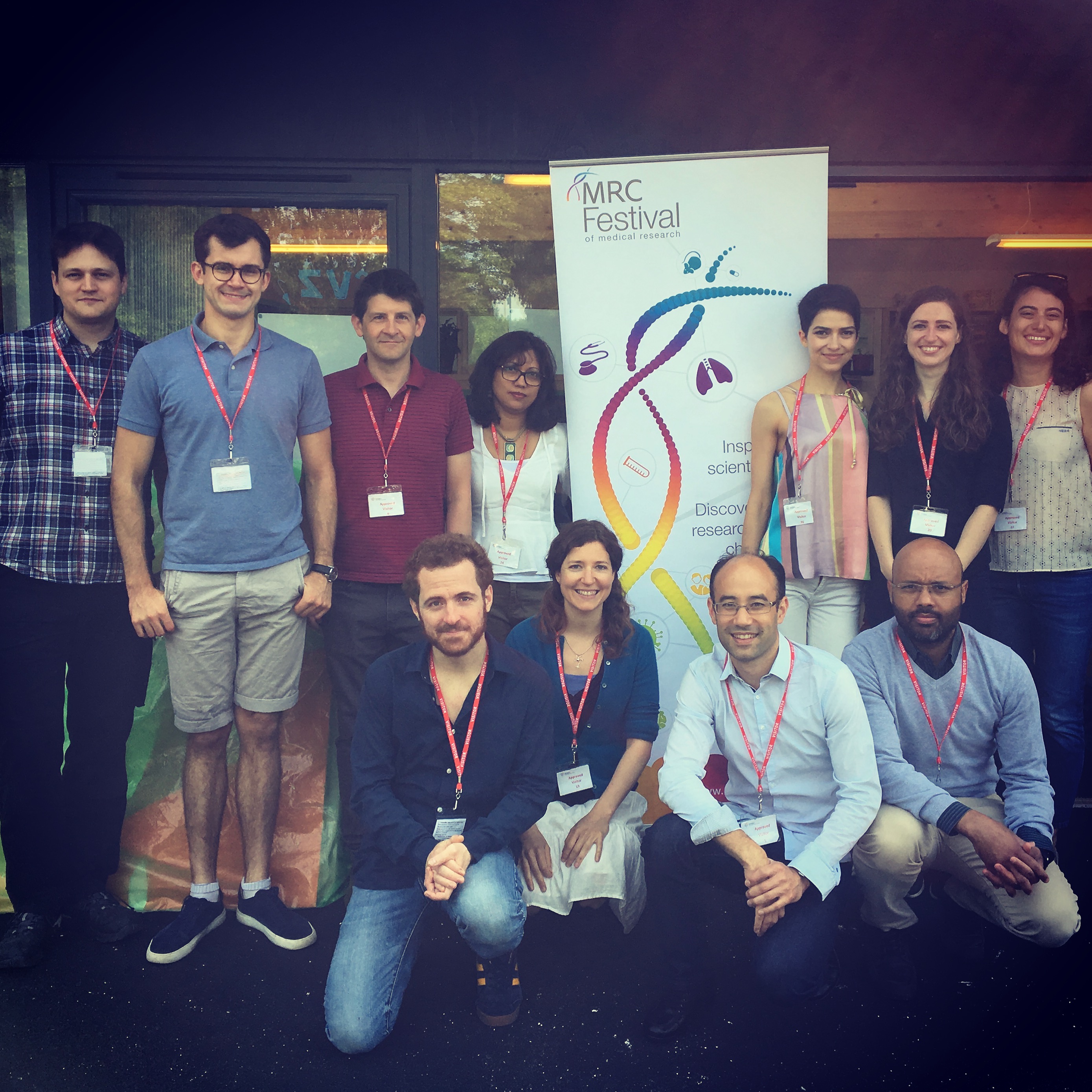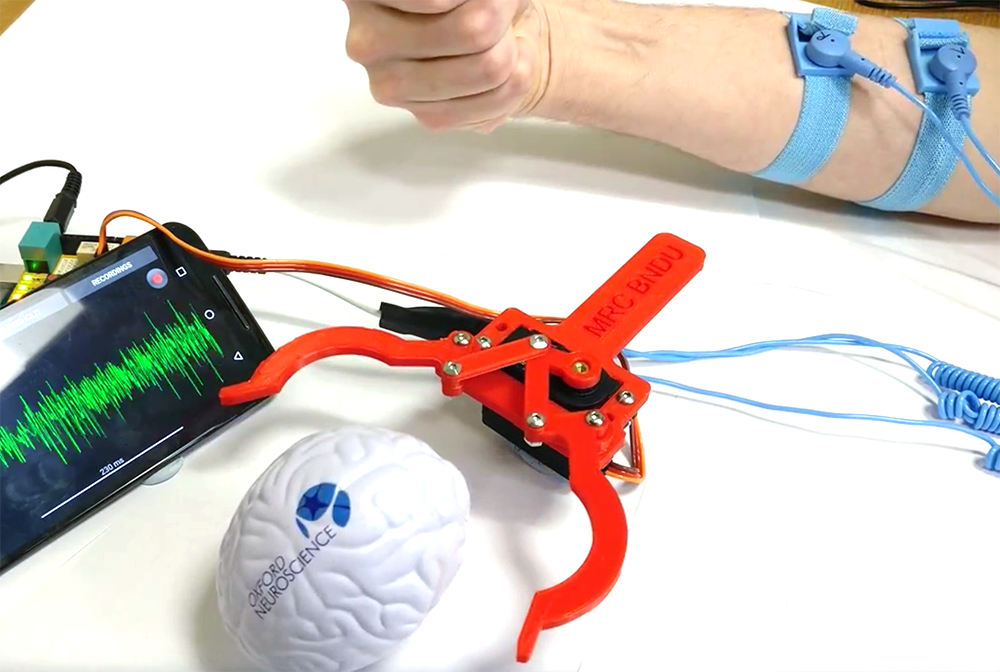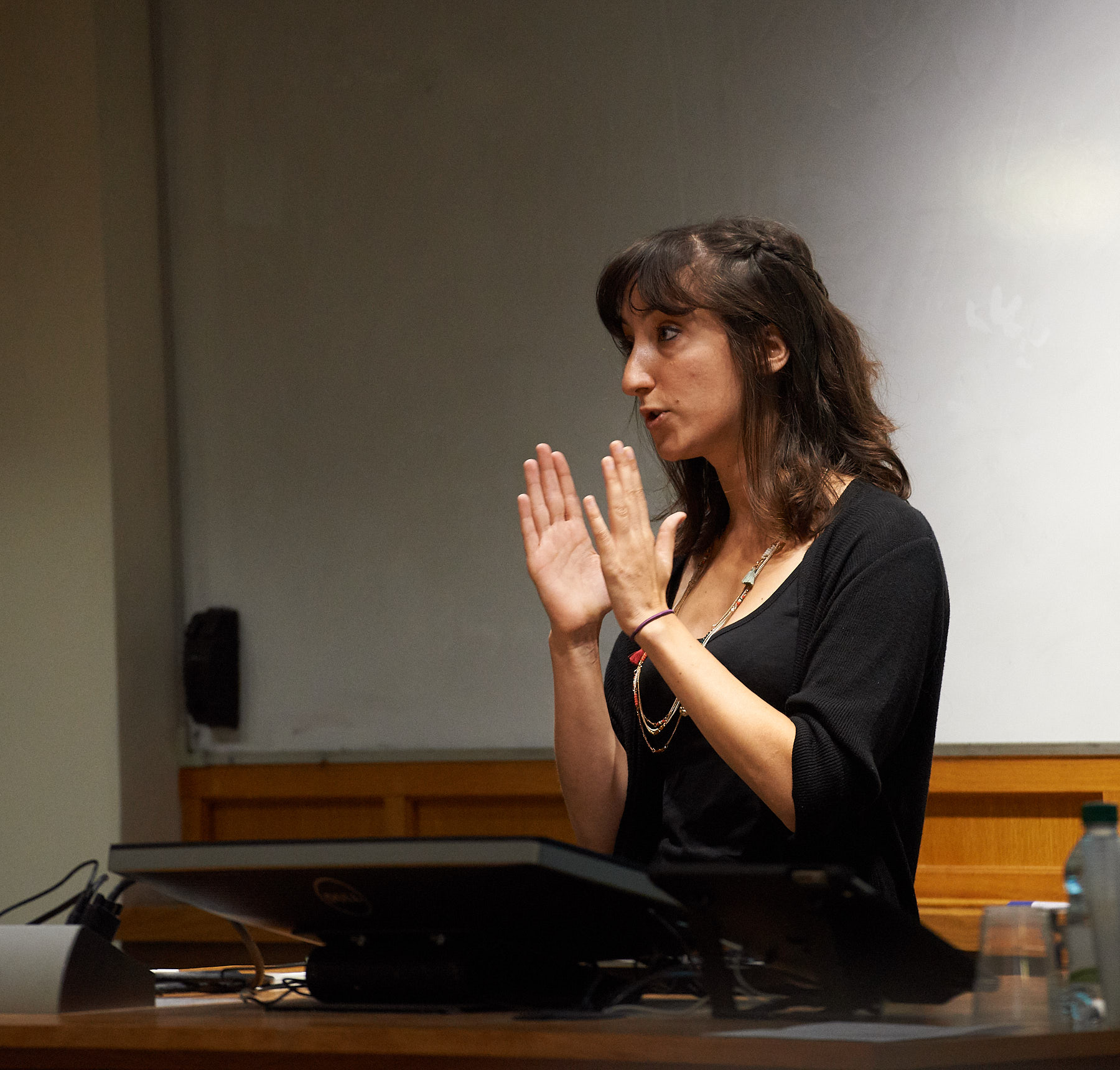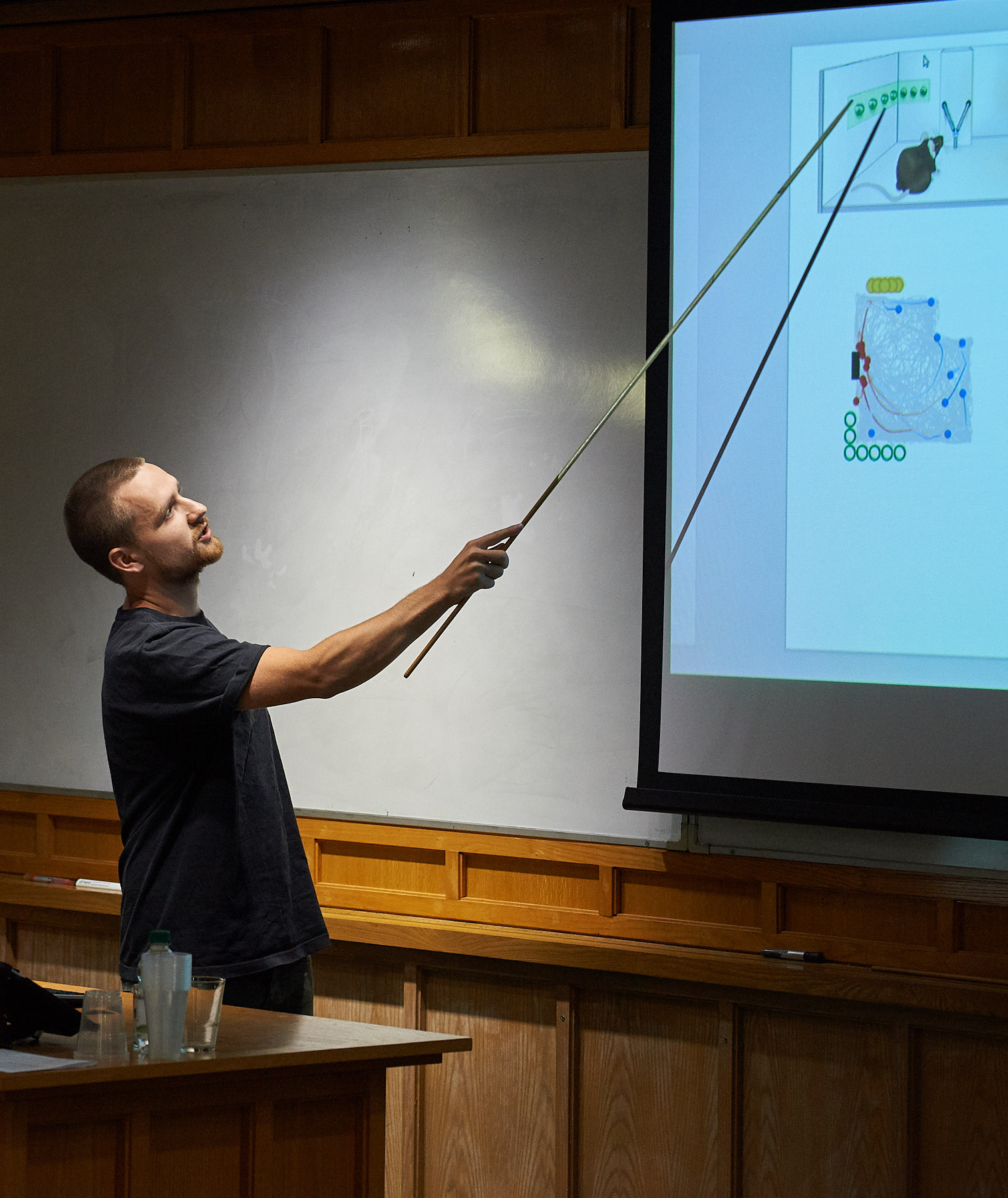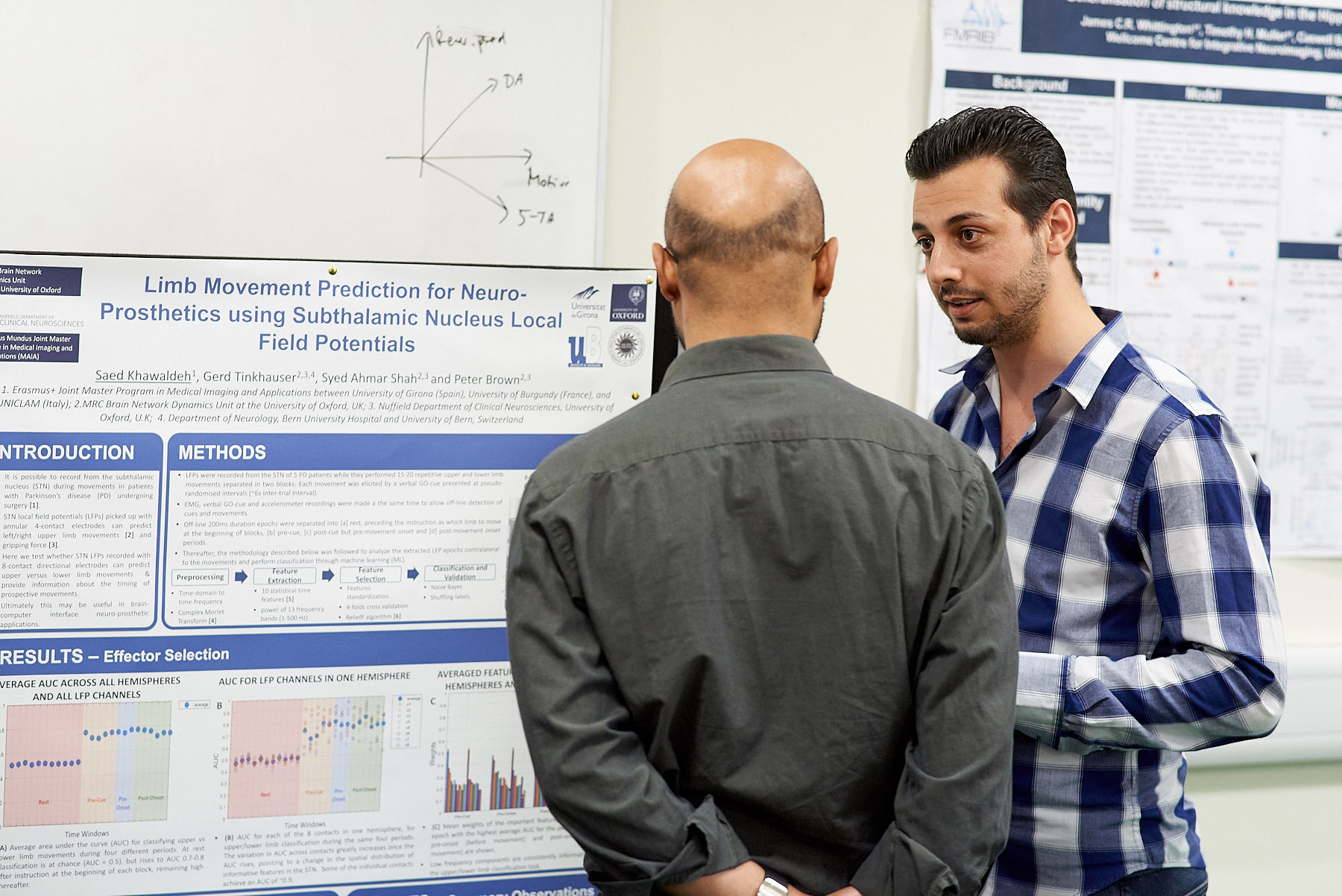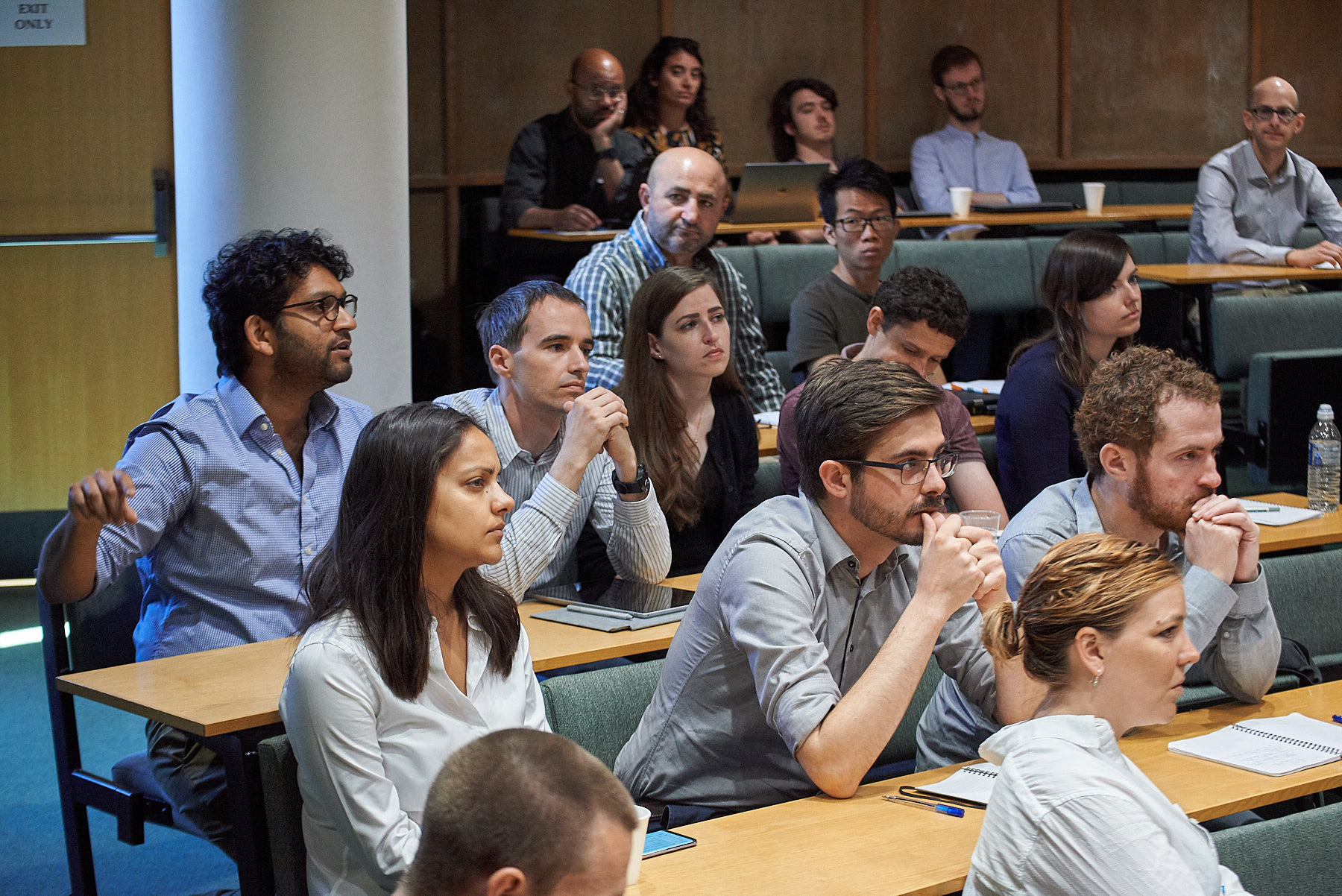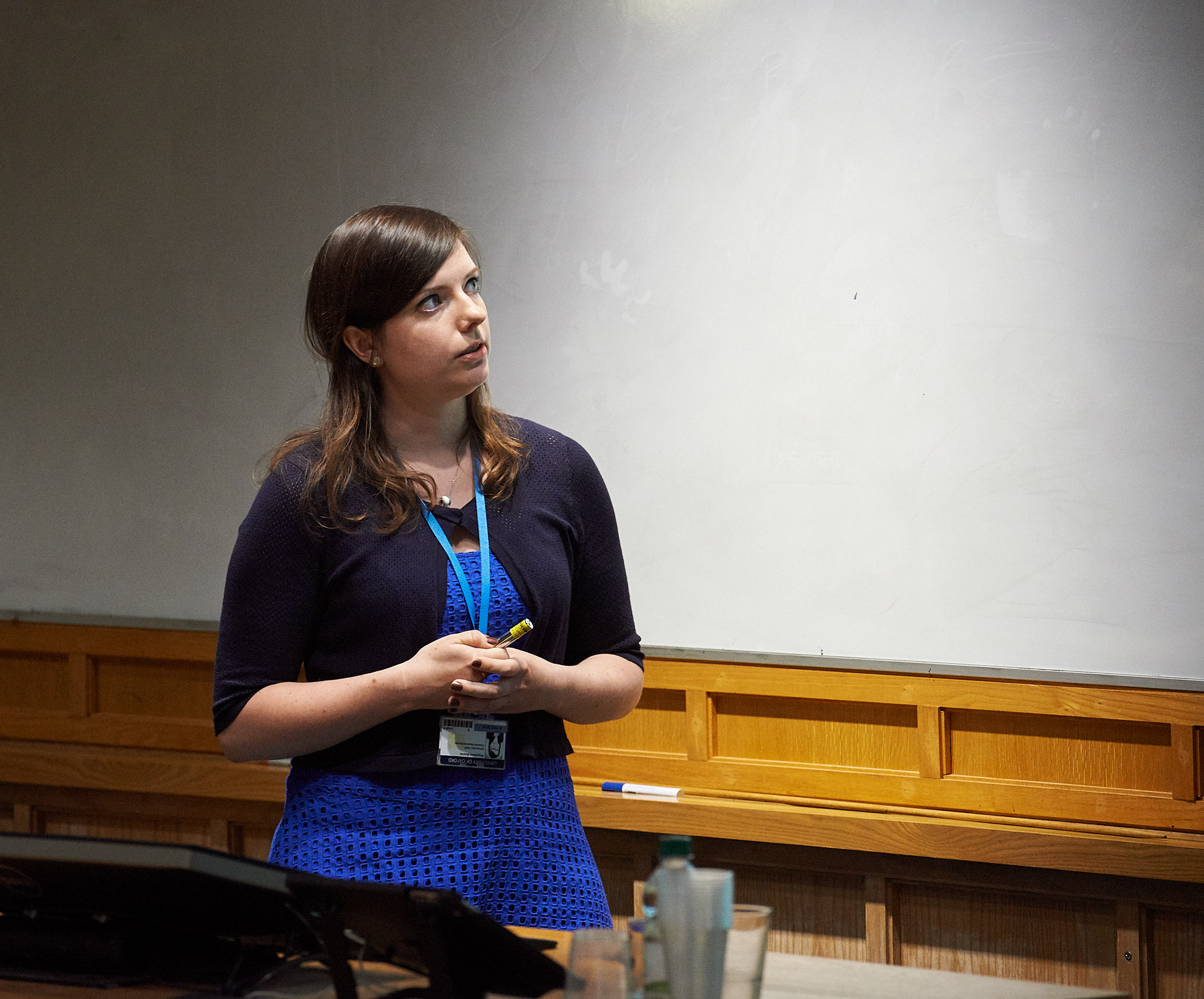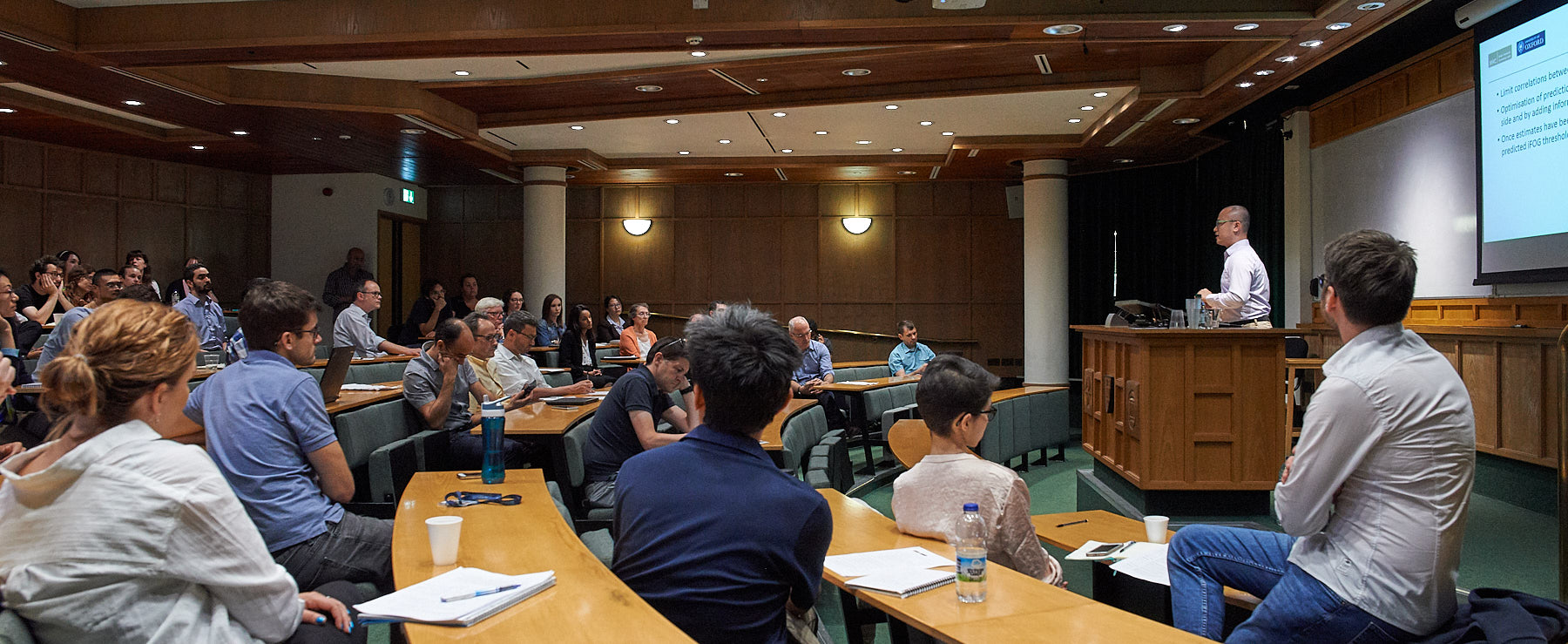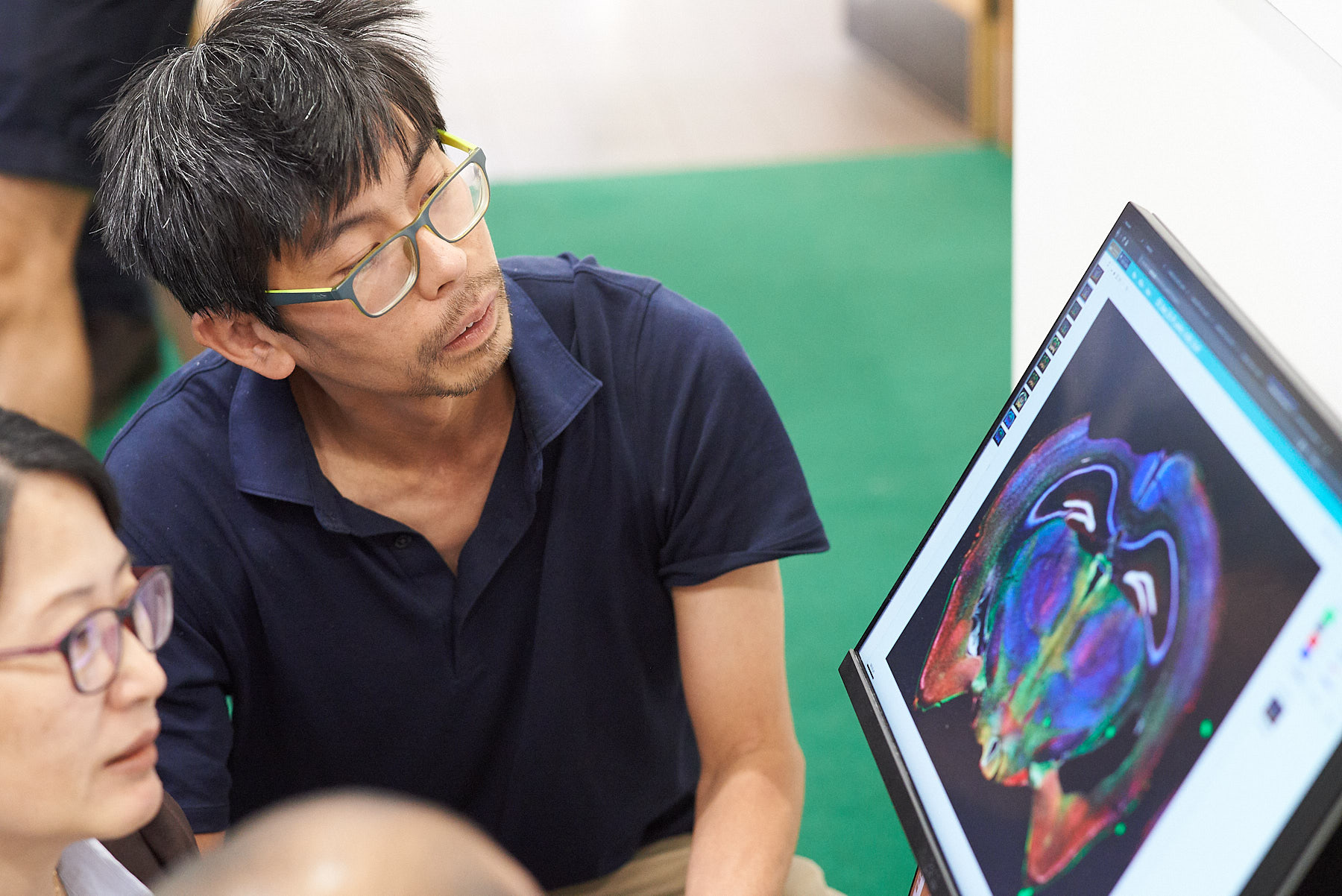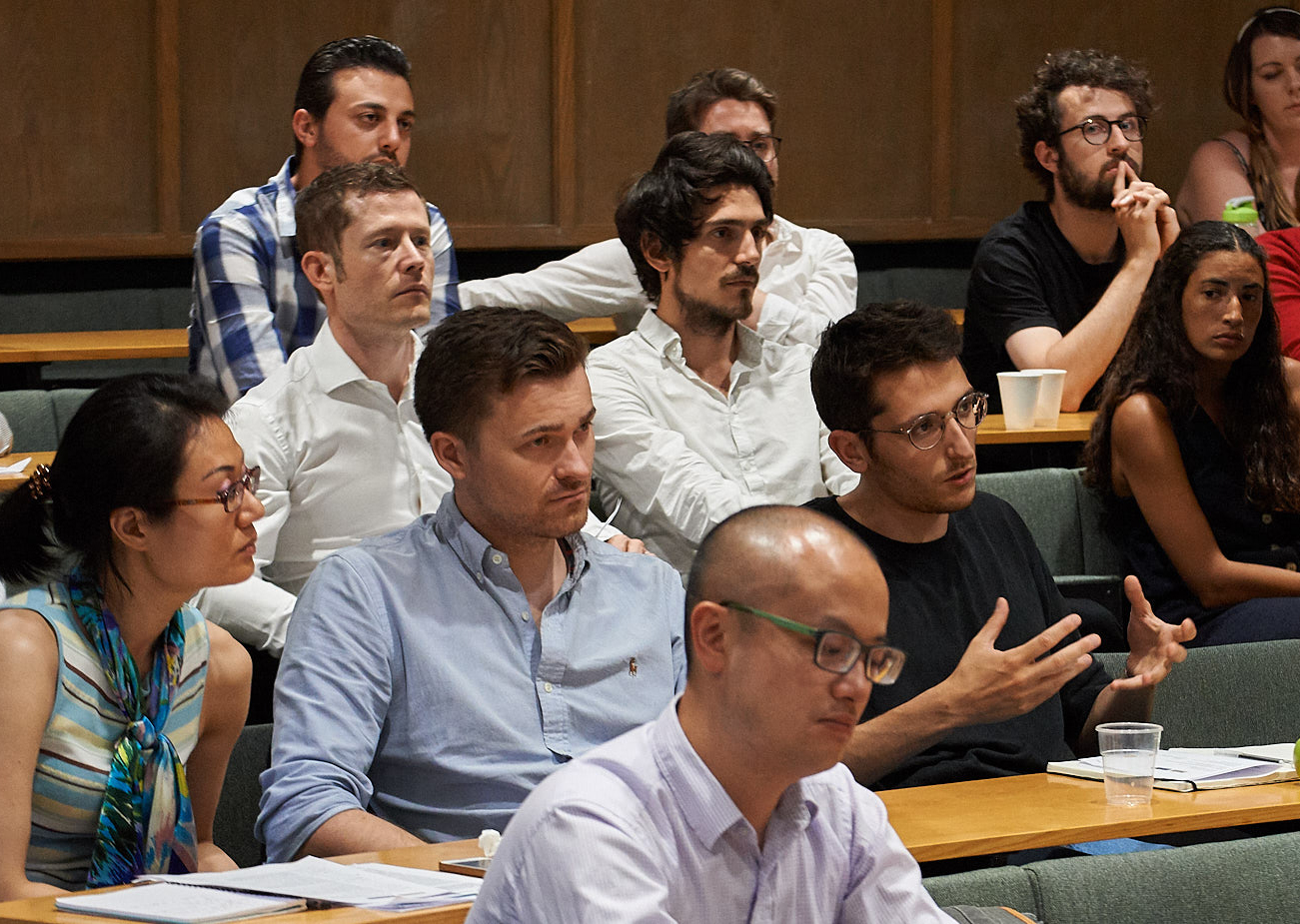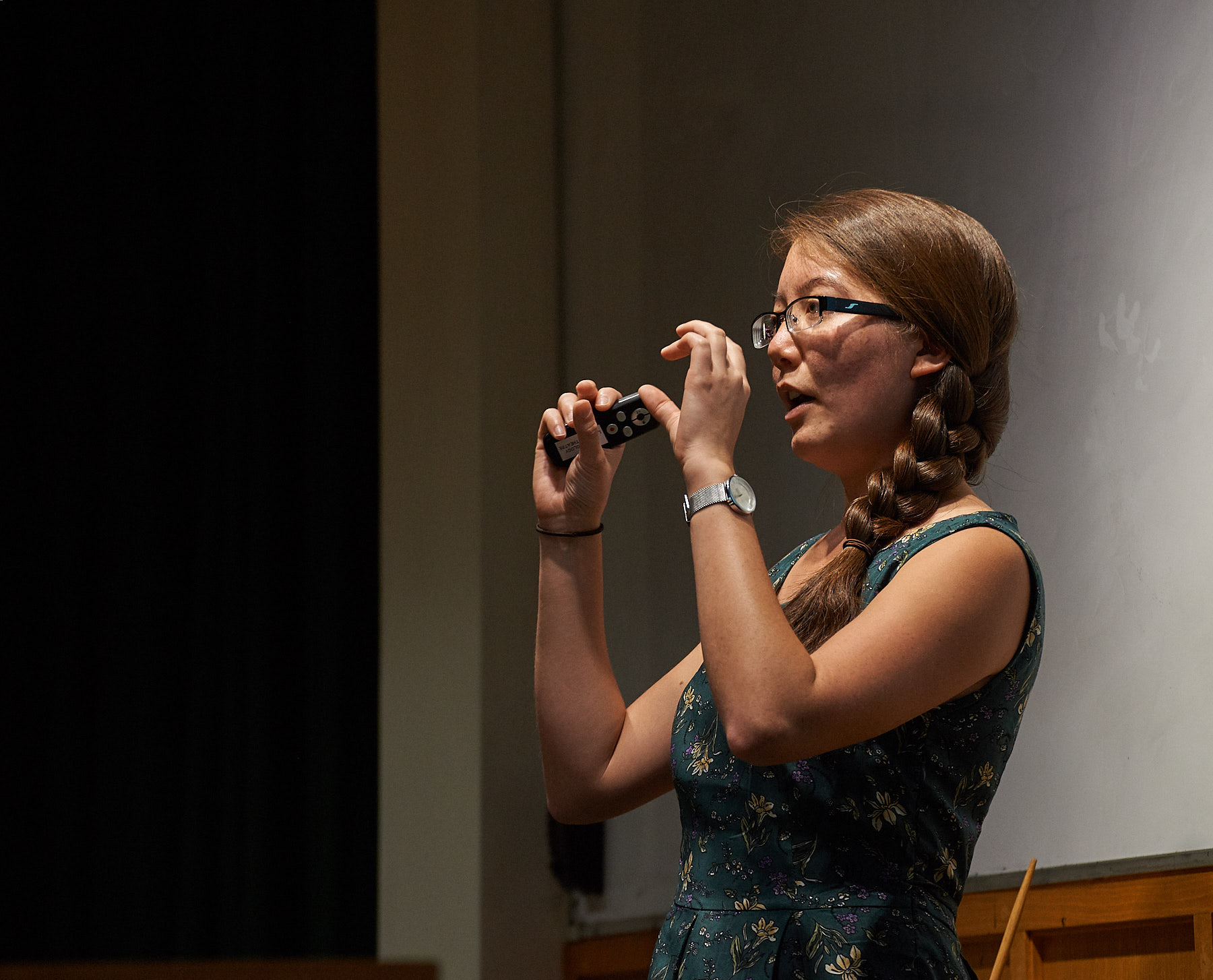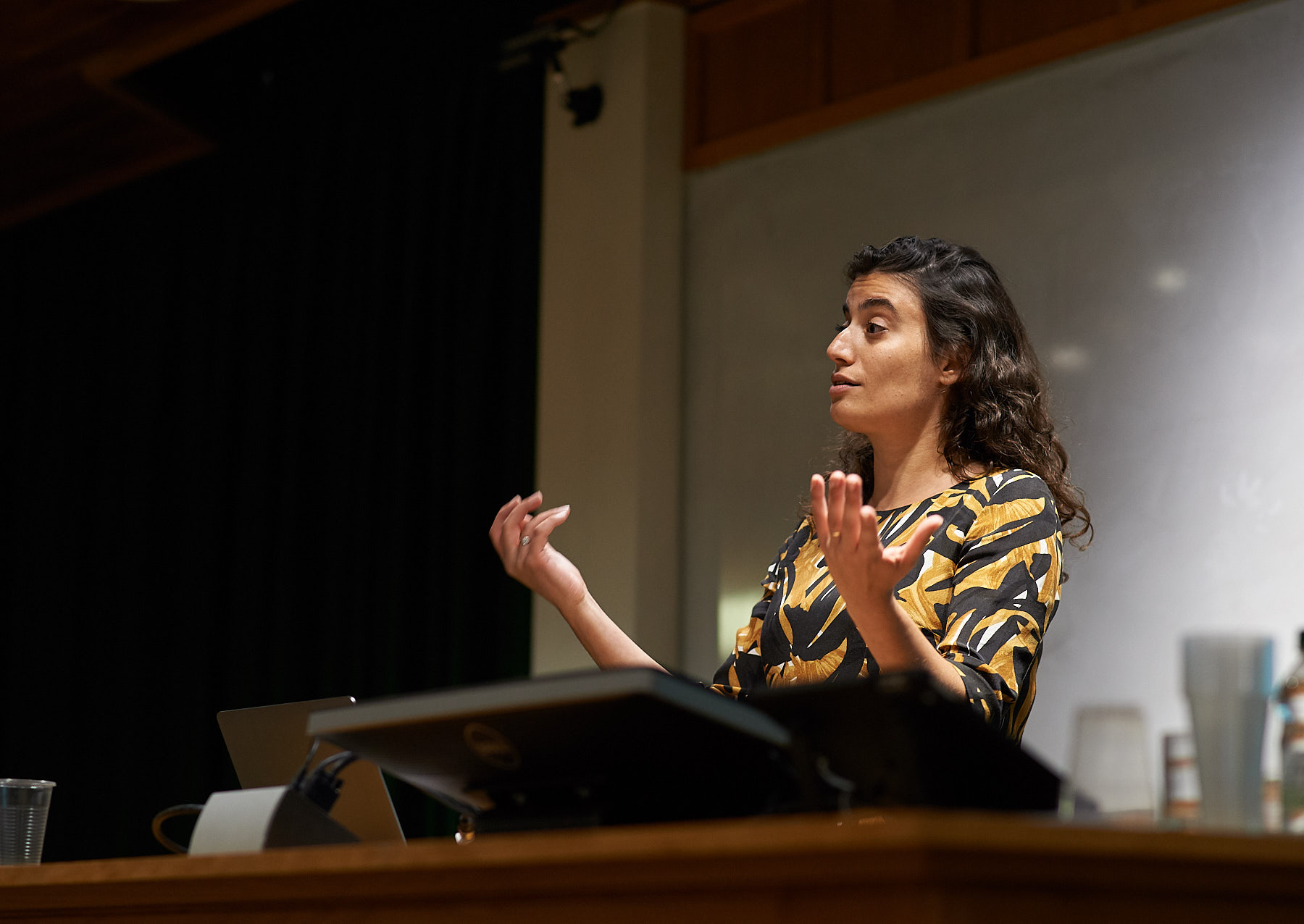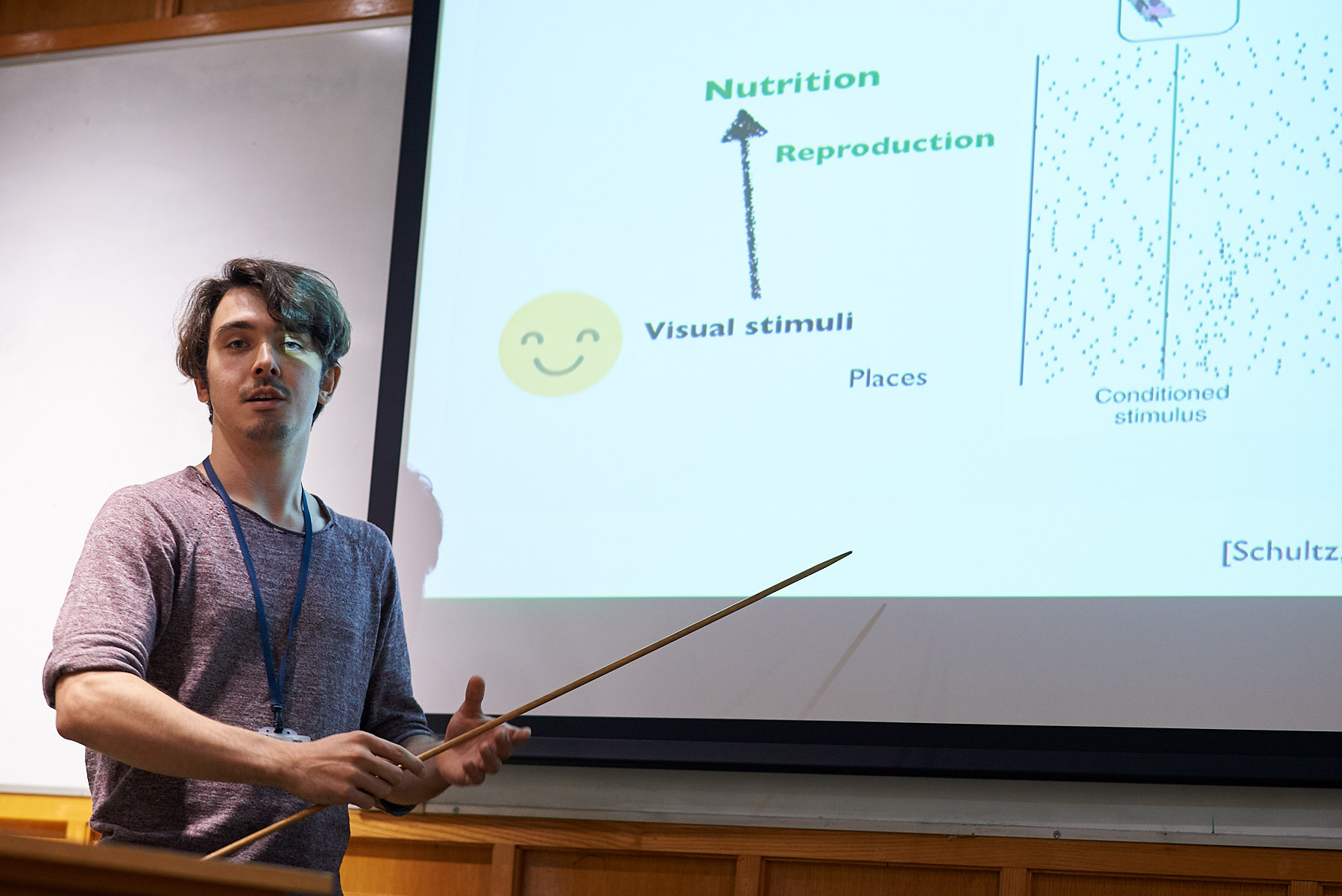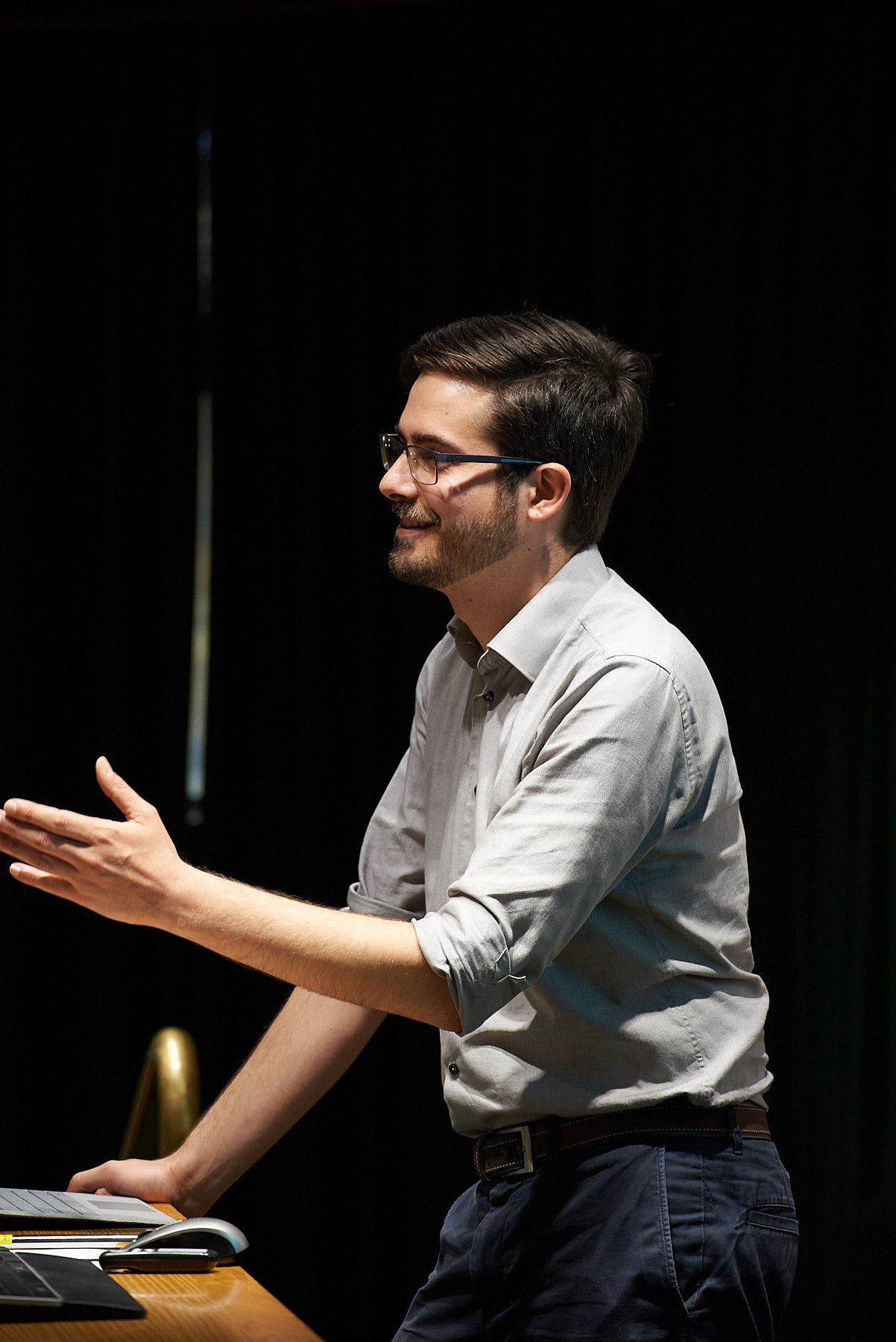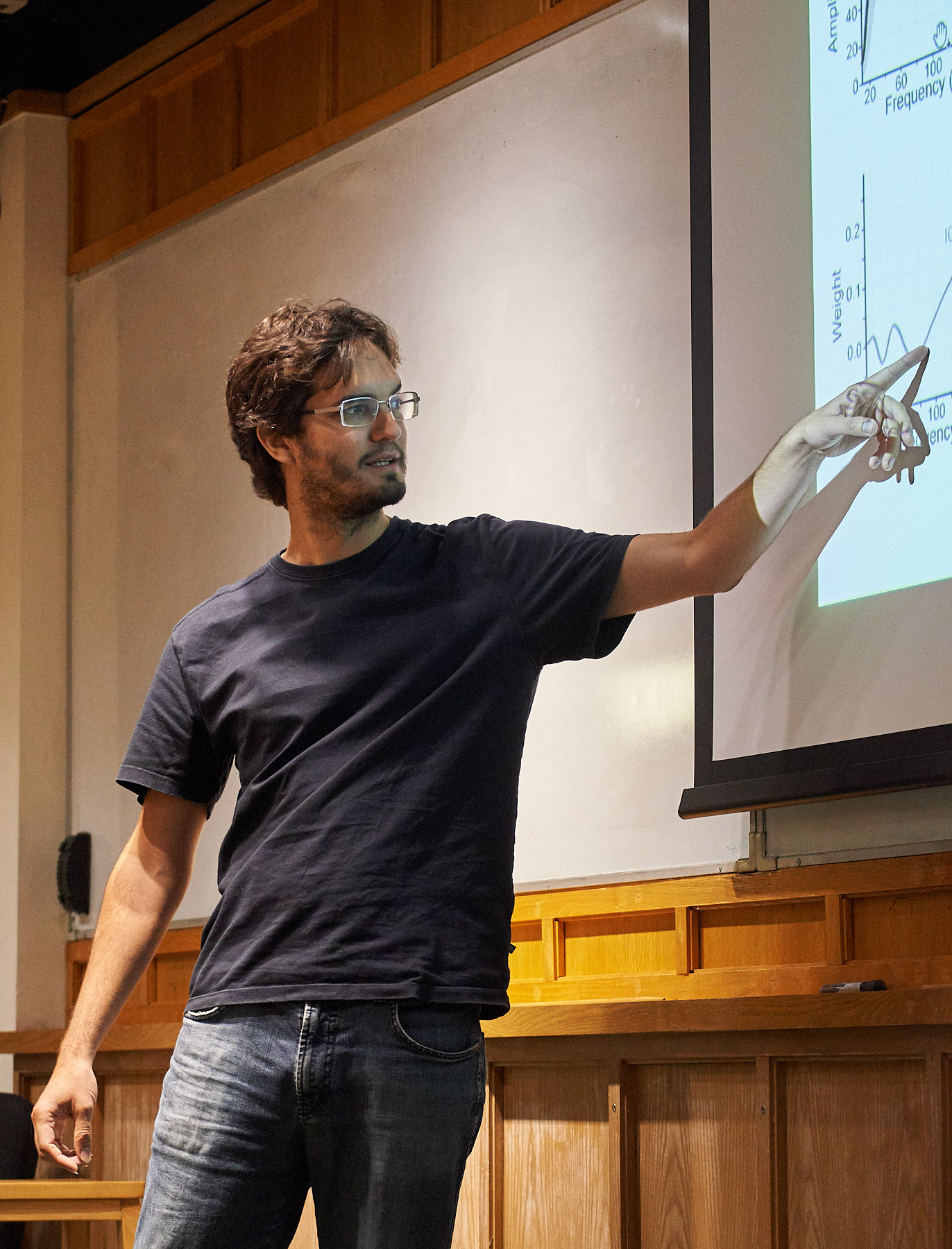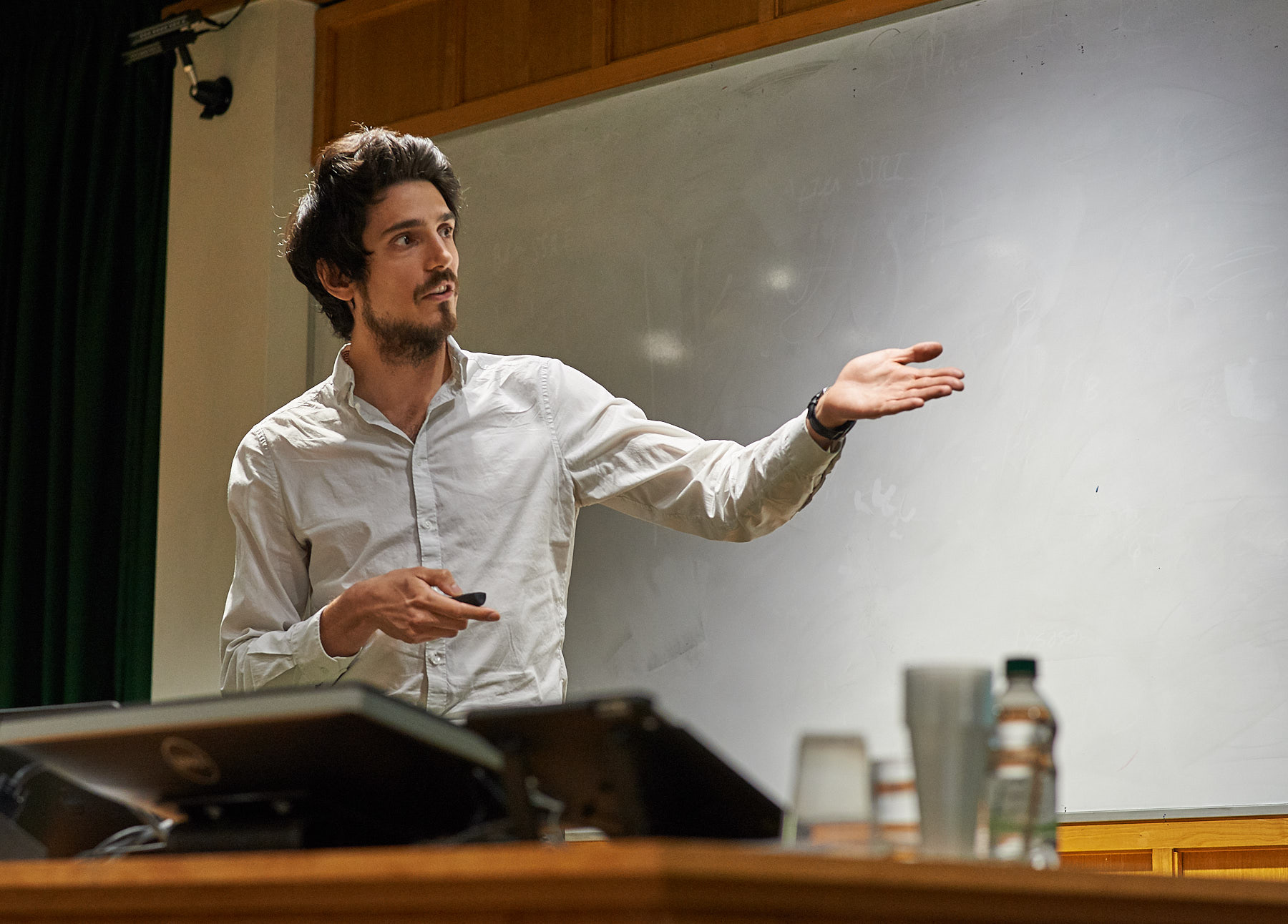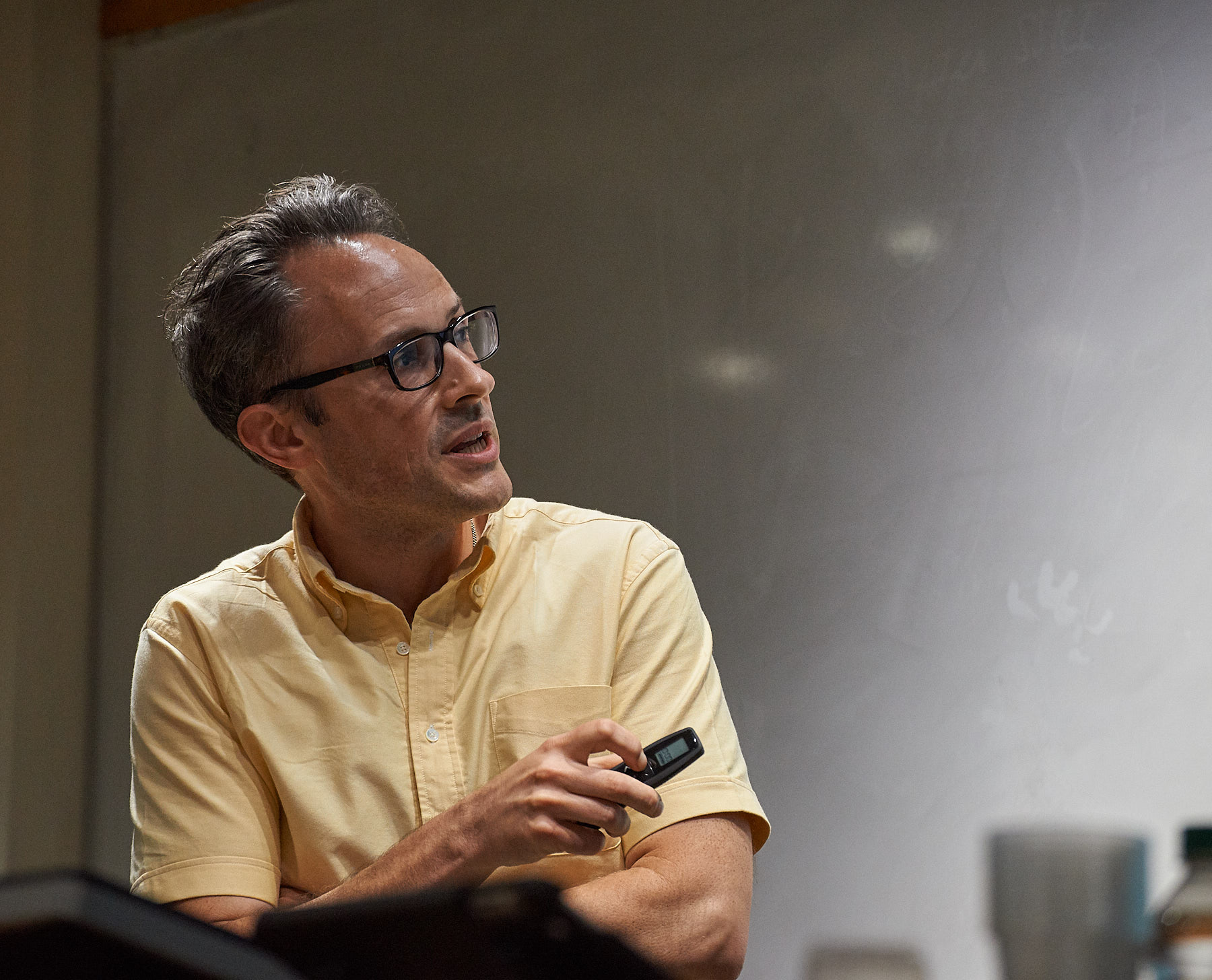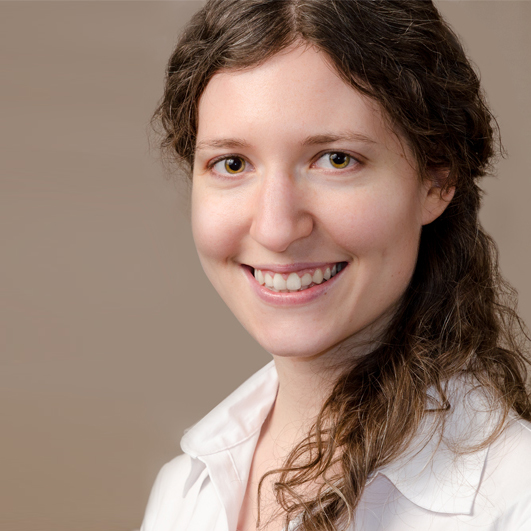
Many congratulations to Unit postdoctoral scientist Dr Petra Fischer who has been awarded the Tilleard-Cole Junior Research Fellowship in Neuroscience at Worcester College, Oxford.
Petra will take up her Fellowship and join the College’s Senior Common Room in October, and is already looking forward to cross-disciplinary discussions and getting involved in College life.
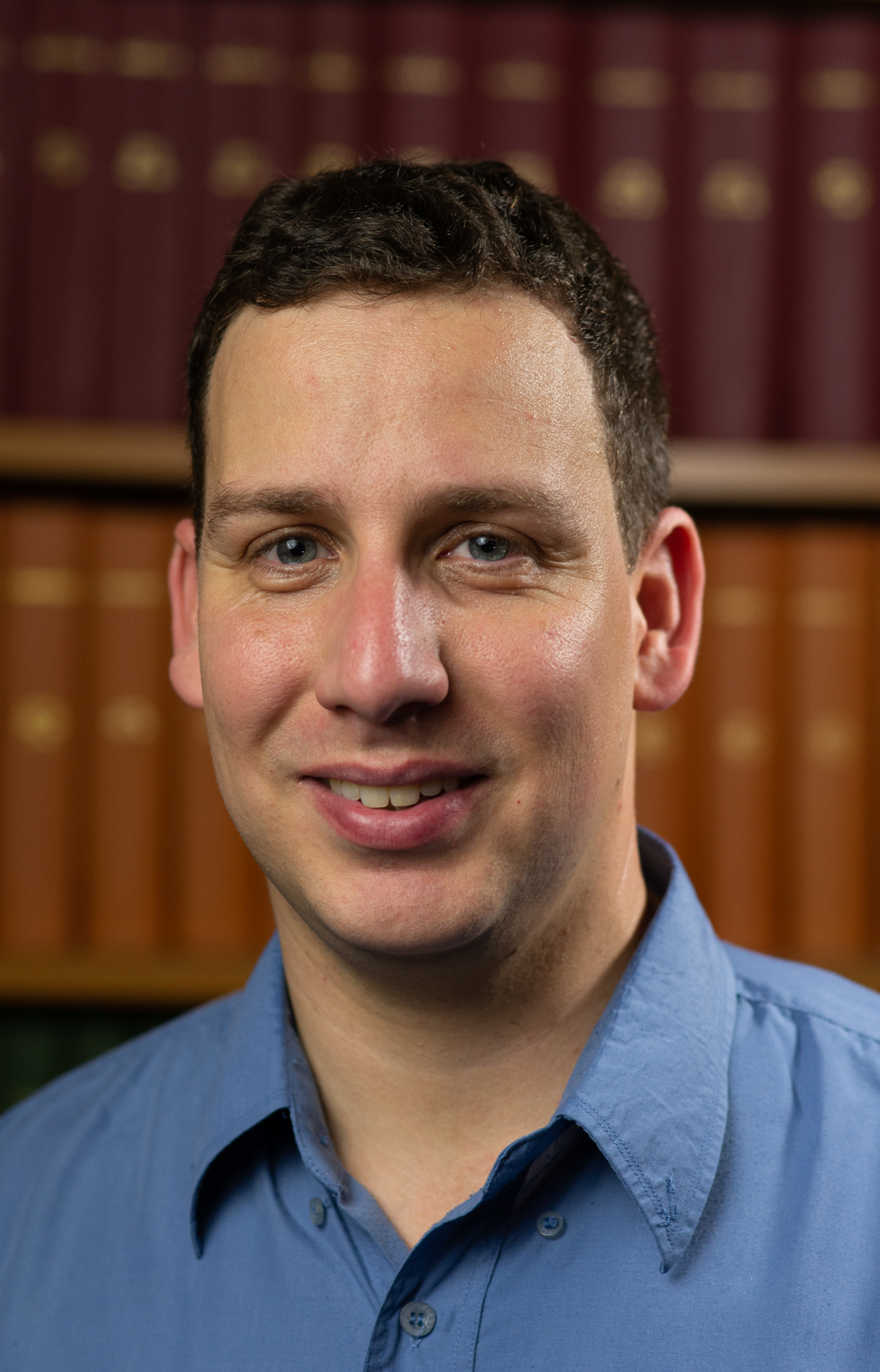
We are pleased to welcome Dr Guy Yona to the Unit as a Postdoctoral Neuroscientist in the Magill Group.
Guy originally graduated with a B.Sc. in Electrical Engineering and a B.A. in Physics from the Technion - Israel Institute of Technology, and then received his M.Sc. in Electrical Engineering from Tel-Aviv University, Israel. In 2017, Guy obtained his Ph.D. from the Technion, where he studied motor network activity in the brains of spontaneously running animals using functional Magnetic Resonance Imaging (fMRI). As part of these studies, Guy also used optogenetic stimulation and models of Parkinsonism. In order to achieve precise spatial control with optogenetics over large areas of the motor cortex, Guy developed a holographic patterned projection system with a chronic implant for use inside the MRI scanner.
Here in the Unit, Guy will be defining the encoding of movement by basal ganglia neurons and how this is perturbed in Parkinsonism, using a combination of in vivo electrophysiological recordings, cell-type-selective manipulations, and behavioural analyses.
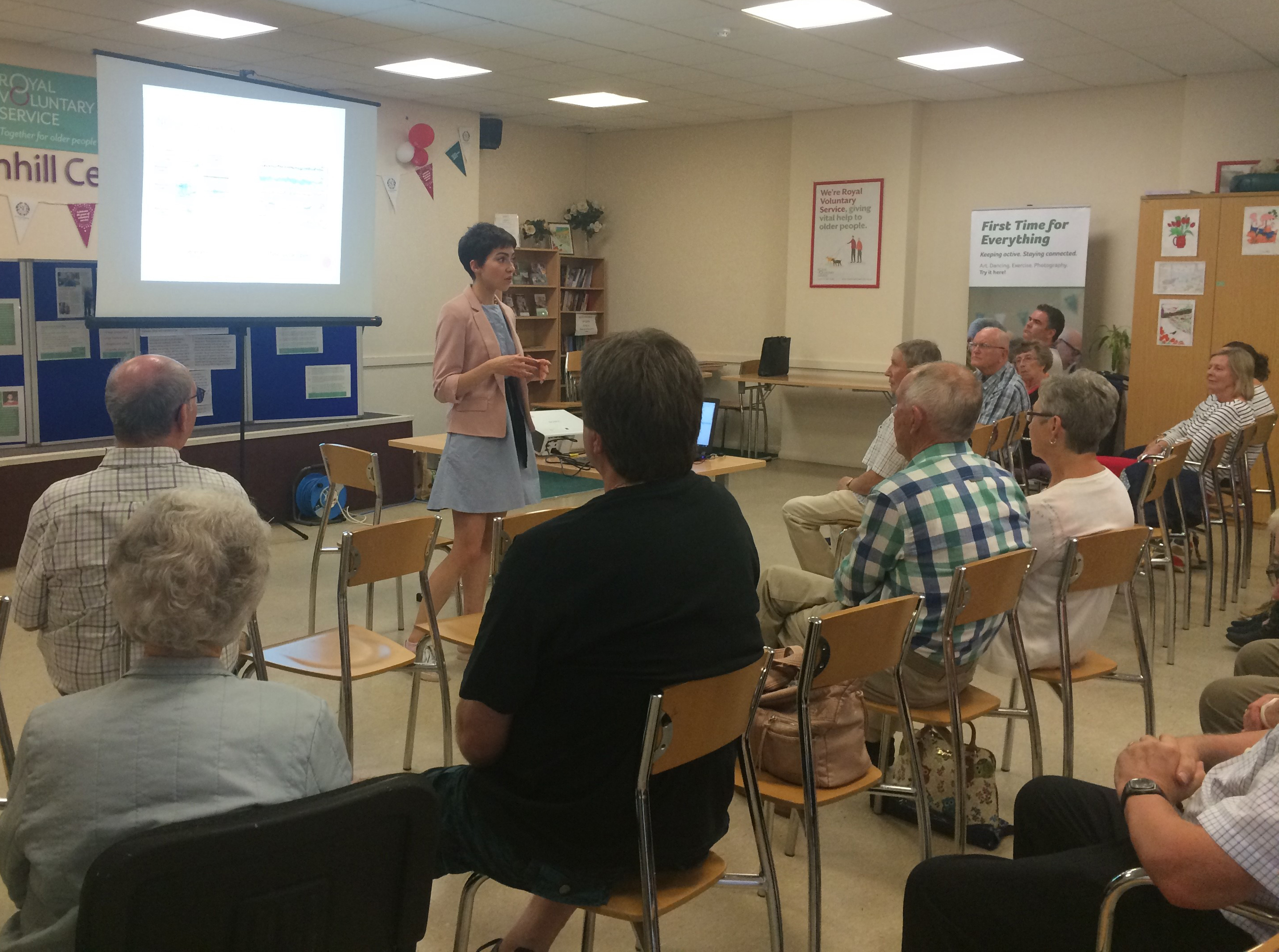
Last week, Unit D.Phil. student Eszter Kormann and Unit Group Leader Huiling Tan went to Banbury to visit about 40 members of a local group of people affected by Parkinson’s, including patients, carers and their friends and families.
The visit began with a talk from Eszter on the role of brain rhythms in Parkinson’s, drawing on her work with patients as well as the use of animal models in Parkinson’s research. Huiling then introduced some of the Unit’s research on brain stimulation for the treatment of Parkinson’s, and shared some exciting new developments for improving these therapeutic approaches. Each of the talks was integrated with a lively discussion session in which the audience’s questions came thick and fast, stimulating further conversations about Unit discoveries made in the clinic and at the lab bench.
Feedback from the audience was overwhelmingly positive, and included: “The presentations were pitched at just the right level for our members, very few of whom have any significant scientific or medical knowledge.” “I was very interested and encouraged to learn that closed-loop Deep Brain Stimulation may be available to some Parkinson’s patients in the future.”
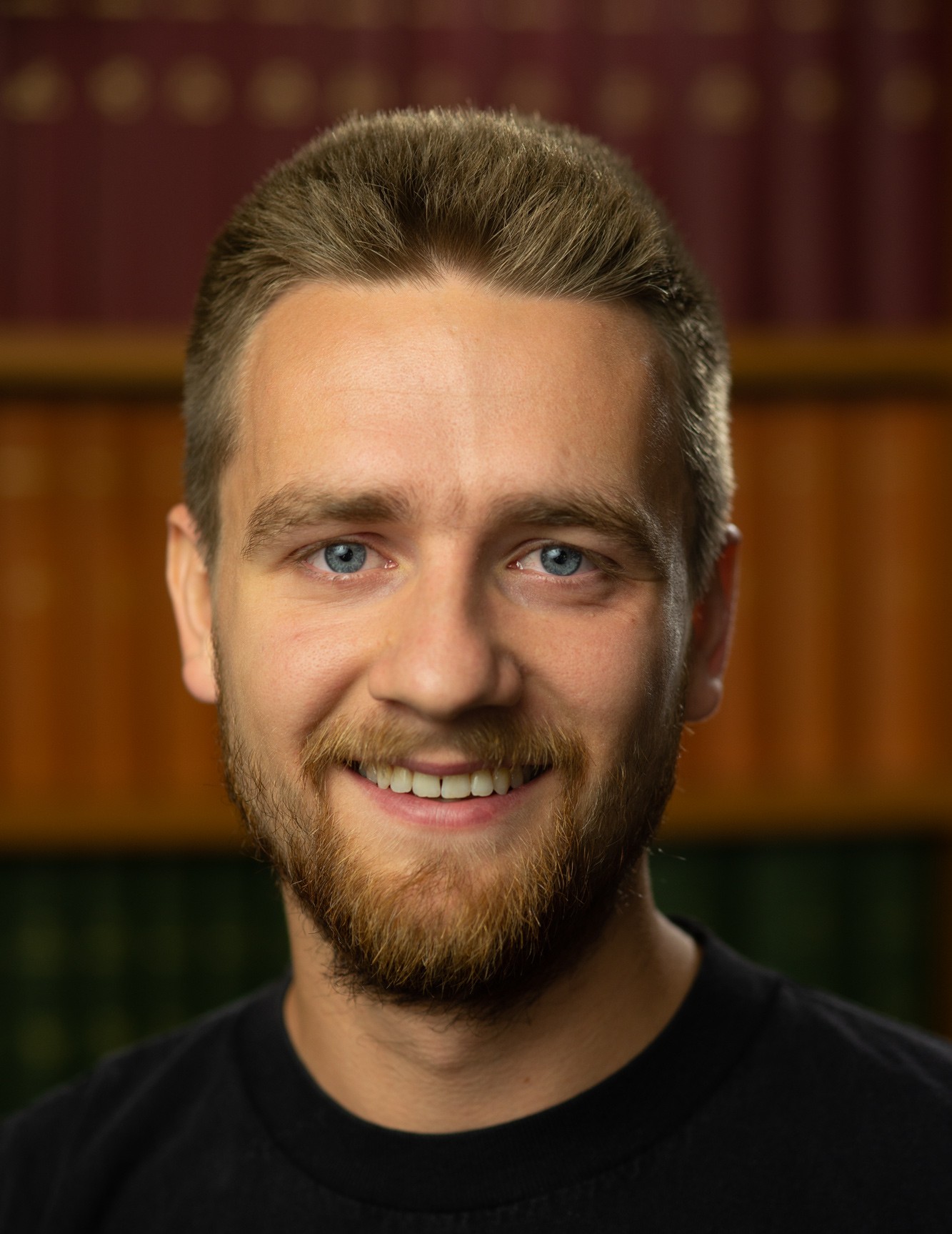
We are delighted to announce that Unit D.Phil. student Alexander Morley has been awarded a prestigious Mozilla Fellowship.
The Mozilla Fellowships for Science present a unique opportunity for researchers who want to influence the future of open science and data sharing within their communities. Mozilla Fellows are web activists, open-source researchers, and technology-policy experts who work on the front lines to help ensure that the internet remains secure, inclusive and decentralized. Fellows develop new thinking on how to address the key emerging challenges to sustainable internet use.
Alex was awarded his Fellowship to continue and expand upon his efforts to make research more accessible, inclusive, and reproducible. Alex is one of only six researchers chosen from a world-wide call for applications; his award was based on his previous work and also recognises the Unit’s creation of a supportive environment for innovation in research practices.
For his Fellowship work, Alex will focus on developing resources around the idea of “Continuous Research”. While more and more data accumulate, and further ways to analyse data are developed, Alex considers that the time is right to embrace automated solutions for comparing and integrating research. Alex sees this not only as an opportunity to innovate, and to enhance reproducibility, but also to remove some of the barriers to participation in research. Alex will take up his Mozilla Fellowship this Autumn, and will be continuing to work as part of David Dupret’s Group at the Unit.
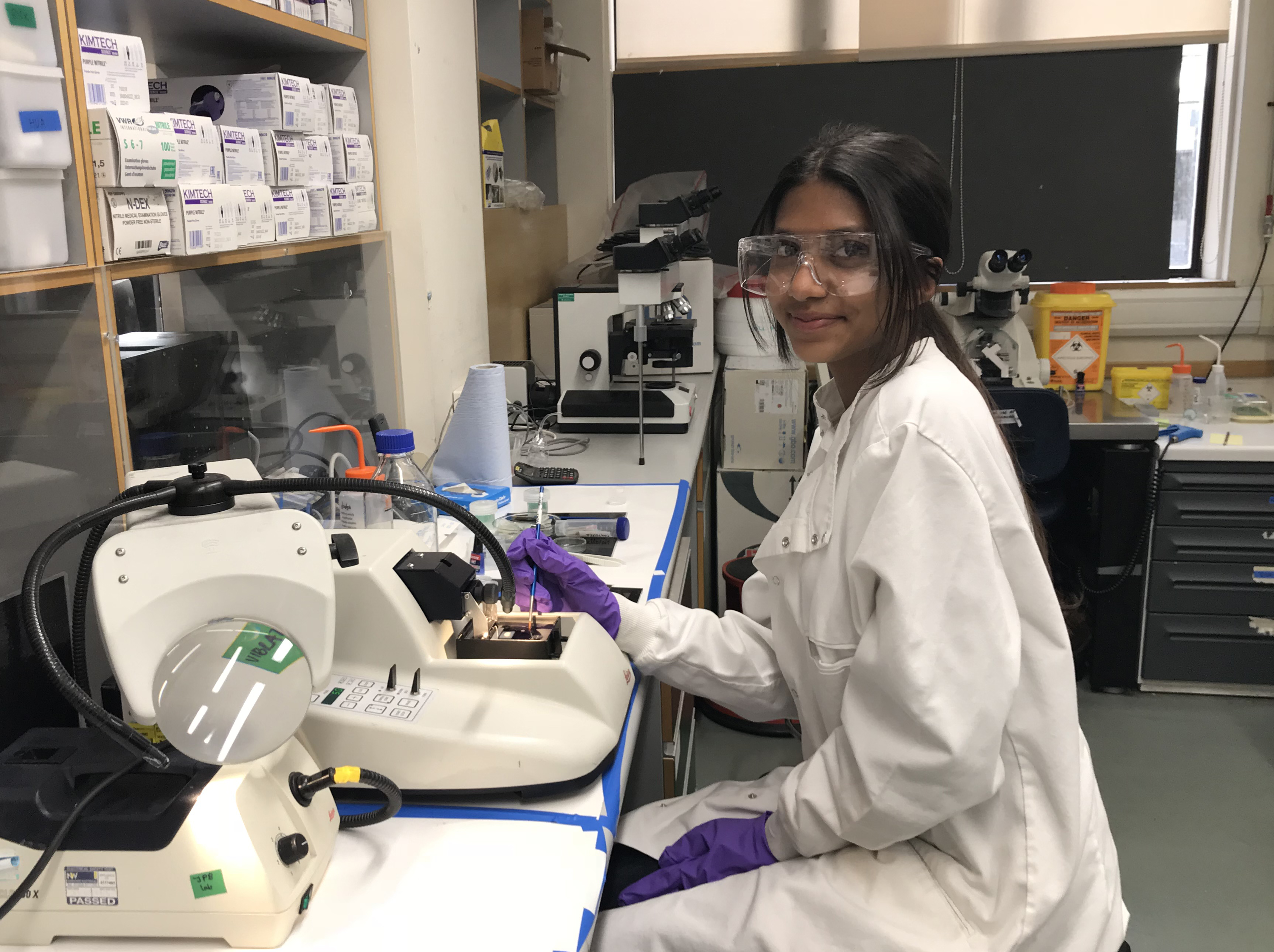
Over two weeks in July and August, the MRC Brain Network Dynamics Unit again hosted school pupils enrolled on an innovative work-experience placement scheme that was organised in partnership with the charity in2scienceUK.
The placement scheme was tailored for pupils from local state-funded schools to support their progress into university degrees and careers in science, technology, engineering and mathematics (STEM). During their time in the Unit, the pupils worked alongside Unit scientists and received personalised mentoring to gain a wide variety of practical experiences as well as to learn more about key concepts and challenges in neuroscience, medical research, and the use of animals in scientific procedures. In a series of integrated workshops with in2scienceUK, the pupils also received guidance on university applications, wider information about STEM careers, and training in transferable skills. The pupils recorded their experiences and progress in blogs and images.
The STEM work-experience placement scheme was pioneered in Oxford by the Unit in 2016, and was then successfully rolled out across the wider University in 2017. Building on these achievements, this year’s scheme extended to over 50 pupils, hosted in labs across eleven Departments and two Divisions at the University.
Deputy Director Professor Peter Magill commented “Over the fortnight of activities, it was inspiring to see the enthusiasm and enjoyment of the pupils, their mentors, and other Unit members. Working with our partners at in2scienceUK, we have again delivered a range of experiences that set a high standard for engagement. We are thrilled by the continued growth of the scheme in Oxford; to progress from hosting 5 pupils to over 50 pupils in just 3 years is remarkable. Engaging local school pupils continues to be a priority for the Unit’s flourishing Outreach Programme, and it has been a pleasure to lead on widening access and participation in STEM.”
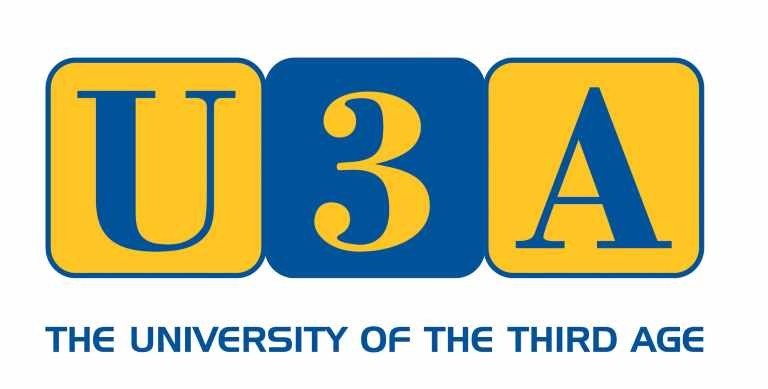
On 7th August, Unit Director Professor Peter Brown visited the Didcot U3A Science, Maths & Technology Interest Group to give a talk entitled “Dealing with bad brain-waves in Parkinson’s”. Peter took the opportunity to communicate the Mission and work of the Unit, before focusing on the research of his own Group. The talk was peppered with insightful questions from the audience, who greatly enjoyed the presentation as well as the open discussion session that followed.
The U3A (University of the Third Age) is a UK-wide movement which brings together people in their ‘third age’ to develop their interests and continue their learning in a friendly and informal environment.
Professor Brown commented, “The meeting was a great opportunity to engage with retired and semi-retired people with a particular interest in science, technology, engineering and mathematics. It was a pleasure to learn that the work of the MRC Brain Network Dynamics Unit is so appreciated.”
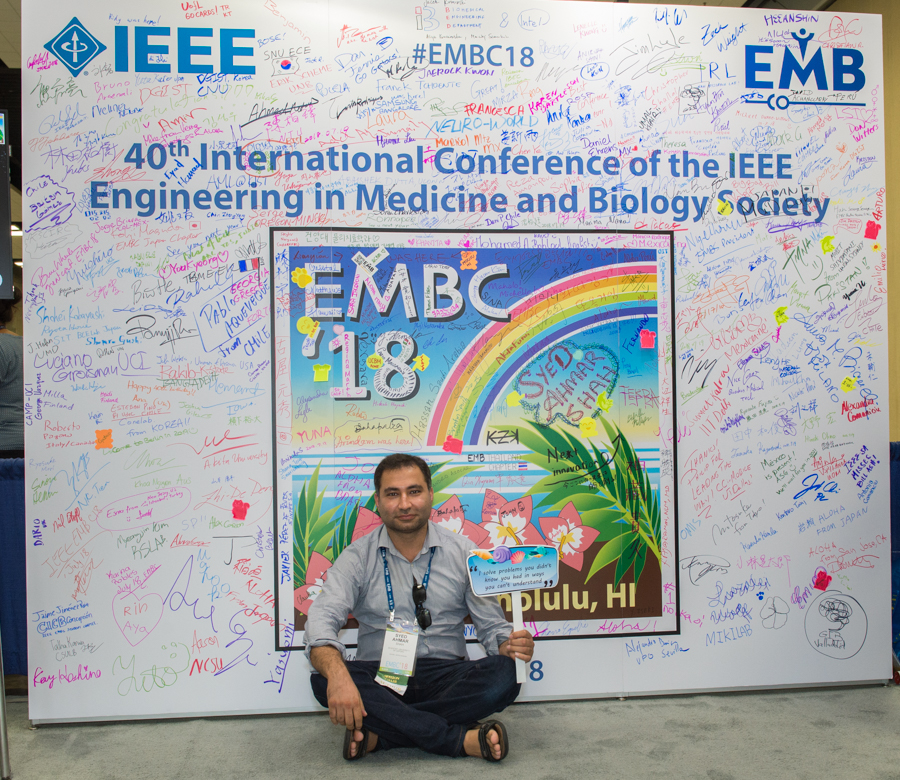
Last week, Ahmar Shah left the Unit to take up his new tenure-track position as a Chancellor’s Fellow at the University of Edinburgh, taking in the 40th International IEEE Engineering in Medicine and Biology Society's Conference in Hawaii along the way!
Ahmar has been working as part of Professor Peter Brown’s Group, where he spearheaded the application of on-line and off-line machine learning techniques. In particular, Ahmar made major advances in the on-line decoding of electrical signals from the human subthalamic nucleus, thereby allowing on-line control of force and identification of tremor. These are key steps in the development of brain-computer interfaces that have the potential to provide stimulation ‘on-demand’ for the treatment of movement disorders.
Ahmar commented “The Unit provides an amazing environment for cutting-edge research, and a wonderful opportunity to work with brilliant scientists from all over the world. In addition to the excellent collaborative science, the Unit offers focused training opportunities and great mentorship for career development. Without a doubt, the research experience and development I had while working in the Unit helped me transition to independence and secure a tenure-track position at the University of Edinburgh.”
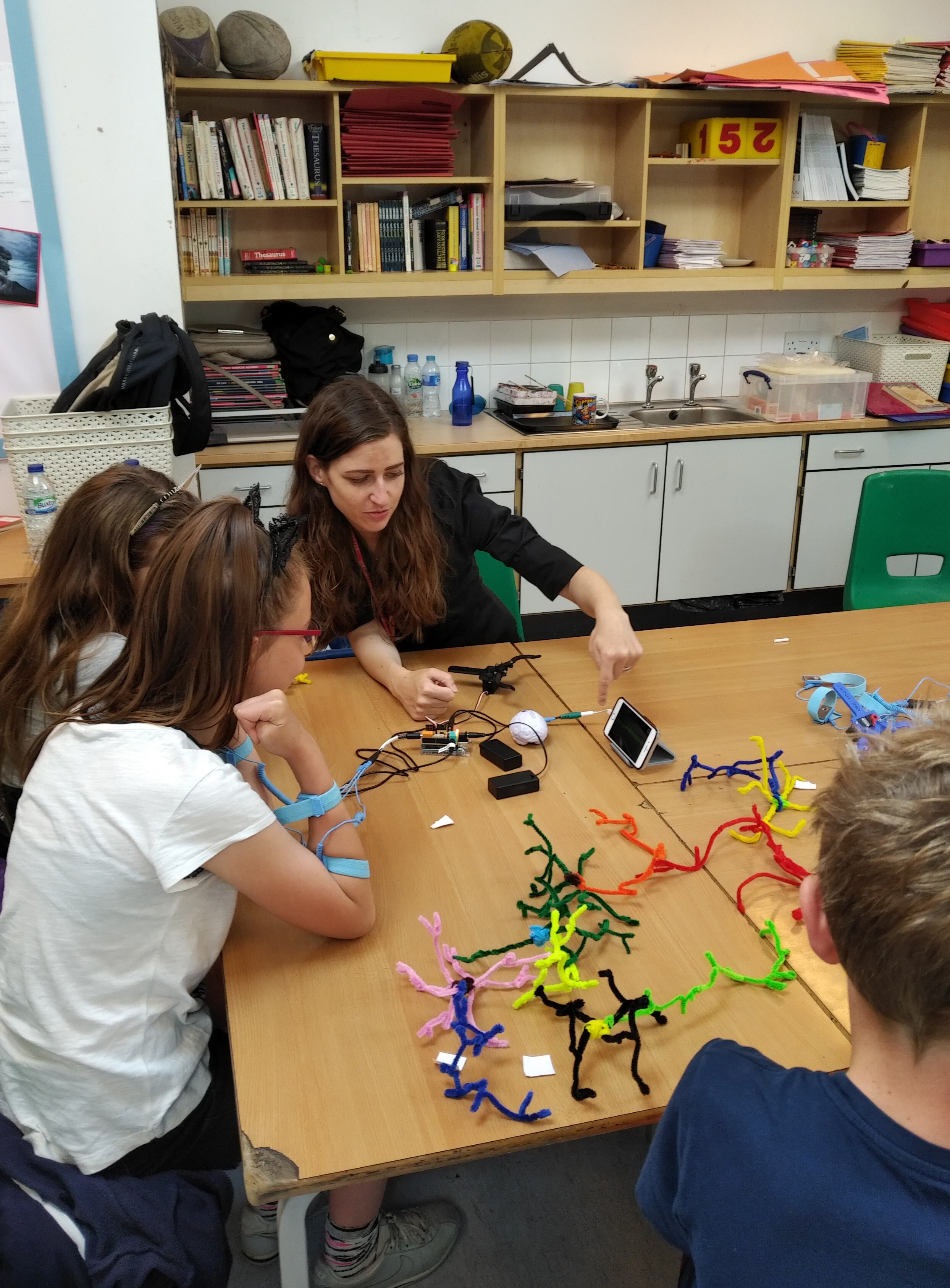
On 15th June, a team of Unit members returned to St Ebbe's C. of E. (Aided) Primary School in central Oxford, where they visited Year 6 pupils and their teachers to help them learn more about science, scientists, and how the brain works to control memory and movement.
Pupils were first given a brief introduction to the work of the Medical Research Council and the MRC Brain Network Dynamics Unit. Pupils, teachers and Unit members then engaged in a range of hands-on activities that included looking at nerve cells under a microscope, reporting on observations by making model cells, measuring electrical activity from muscles to control a robotic claw, comparing the brains of different vertebrates, discovering different types of memories, and using a game version of a brain-machine interface.
School teacher Mrs Eve Jackson commented: “The children (and staff!) were thoroughly bursting with excitement after the session. We are so grateful for the Unit’s members’ time and efforts. I’m sure it will send the children off to secondary school with a passion for science!”
Feedback from the pupils included:
“I loved it, I never knew that our brain had so many parts.”
“The lifting the ball thing with my thoughts was so cool, I thought I was a Jedi.”
“I went home with so much knowledge about the brain, I loved learning about animal brains - I quizzed my family and I knew SO MUCH MORE!”
“The goggles were the best part - my eyes thought they were being tricked.”
The Unit’s visit to the school was one of many public engagement events led by the Medical Research Council and held across the country from 14th-24th June 2018 as part of the MRC Festival of Medical Research.
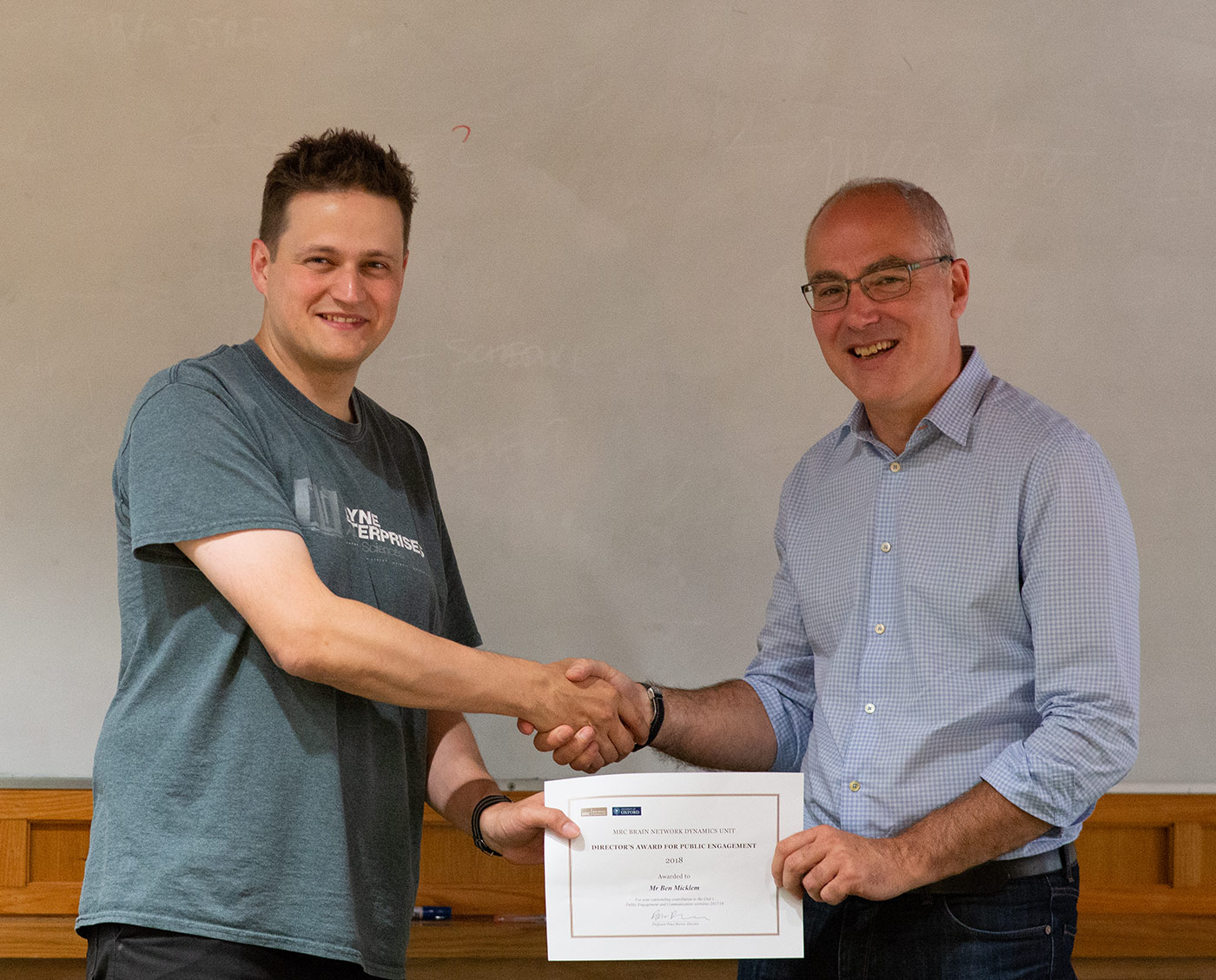
Congratulations to Unit Research Support Manager Mr Ben Micklem on winning the Director’s Award for Public Engagement for 2018.
The Award is given annually, on the basis of nominations made by Unit members, to recognise and celebrate the exemplary contributions of an individual or small collective to the Unit’s extensive Outreach Programme.
Ben received his Award from Unit Director Professor Peter Brown at a special ceremony held at the Unit’s biannual Science Day.
Professor Brown commented “It gives us all great pleasure to recognise and reward Ben in this way. Ben has contributed to almost every public engagement activity hosted within the Unit over the last 3 years. He has also driven the development of the Unit’s website, a key resource for outreach. Last but not least, Ben has started running science clubs at a local primary school. Ben provides a sterling example to us all of excellence, commitment and personal initiative in public engagement.”
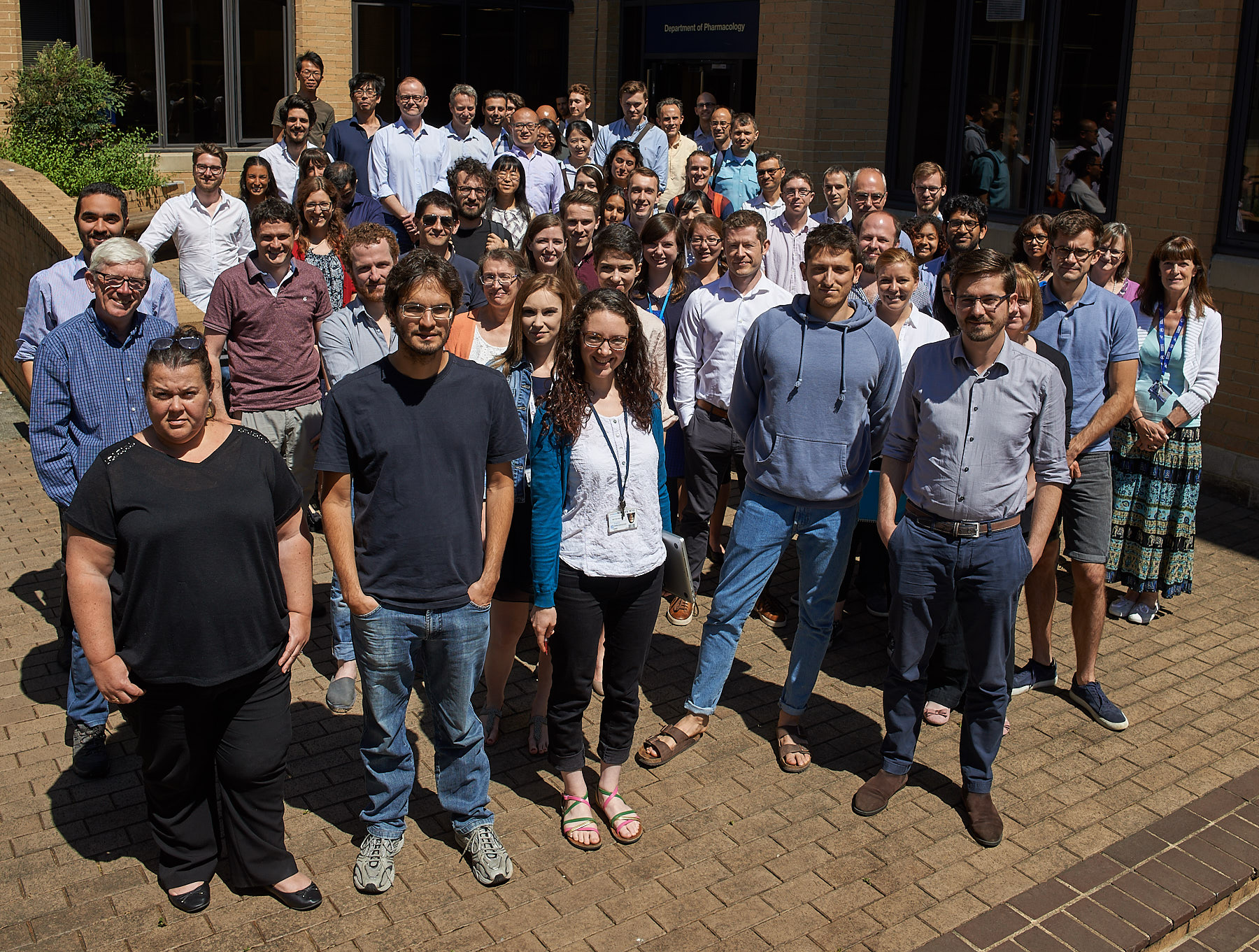
The Unit held its seventh Science Day on Friday 29th June 2018. Ongoing, unpublished and future research projects were the centre of discussion, and Unit members and visitors eagerly took the opportunity to give the constructive criticism that is needed to foster world-leading collaborative research.
There were 10 short talks and 6 poster presentations, all of which were given by the Unit’s early-career scientists. Attendees were also treated to a Special Lecture by Professor Matt Jones of the University of Bristol, in which he gave an entertaining and insightful account of cortical activity dynamics during learning and decision making.
Unit Director Professor Peter Brown commented "Another great Science Day at the Unit. We were all energised by the fantastic discoveries being made by the younger generations of talented scientists in the Unit. Their creative and collaborative thinking epitomises our scientific culture, and continues to reveal exciting new insights into brain function and dysfunction."
